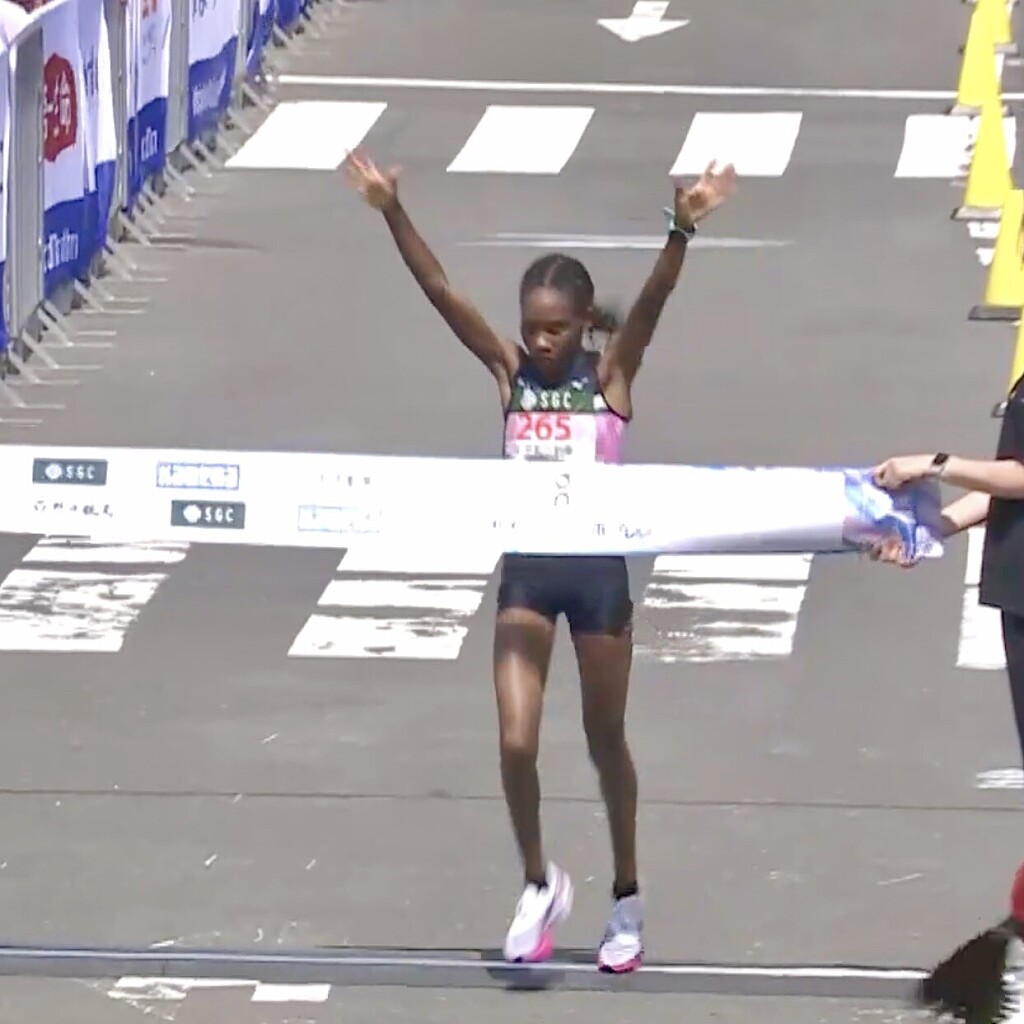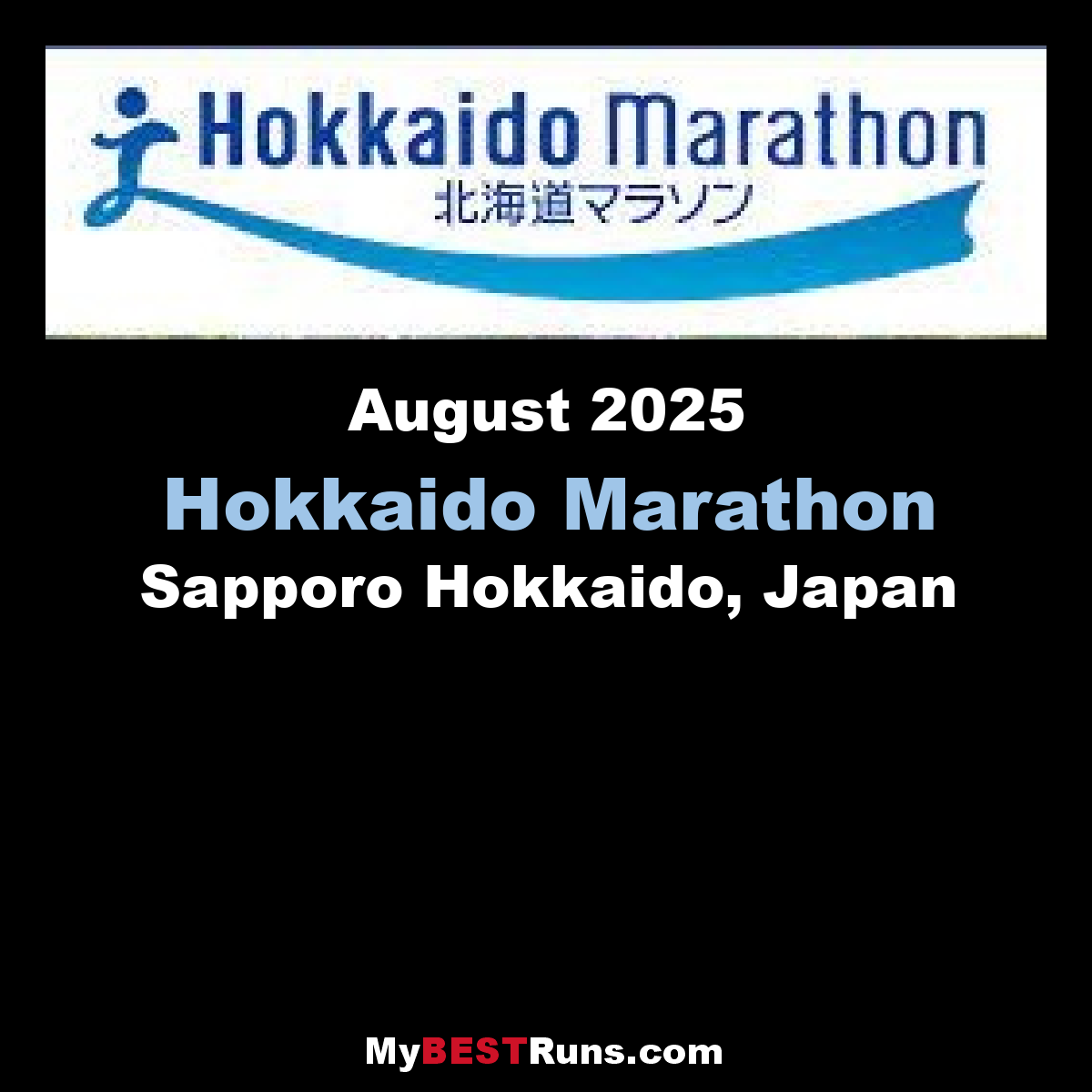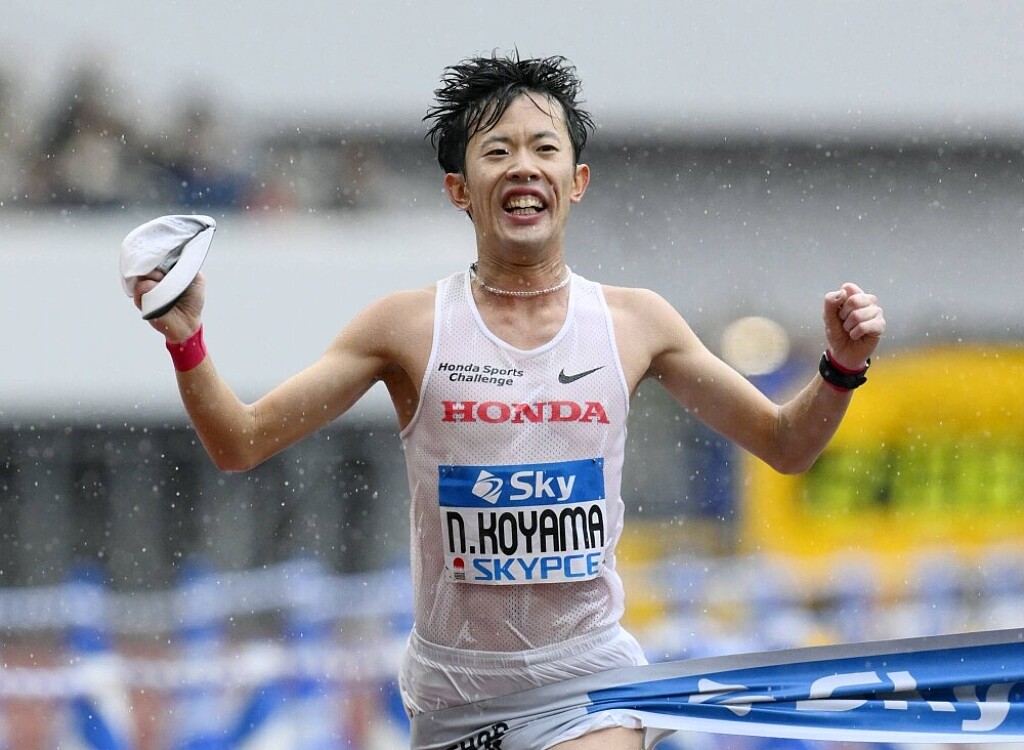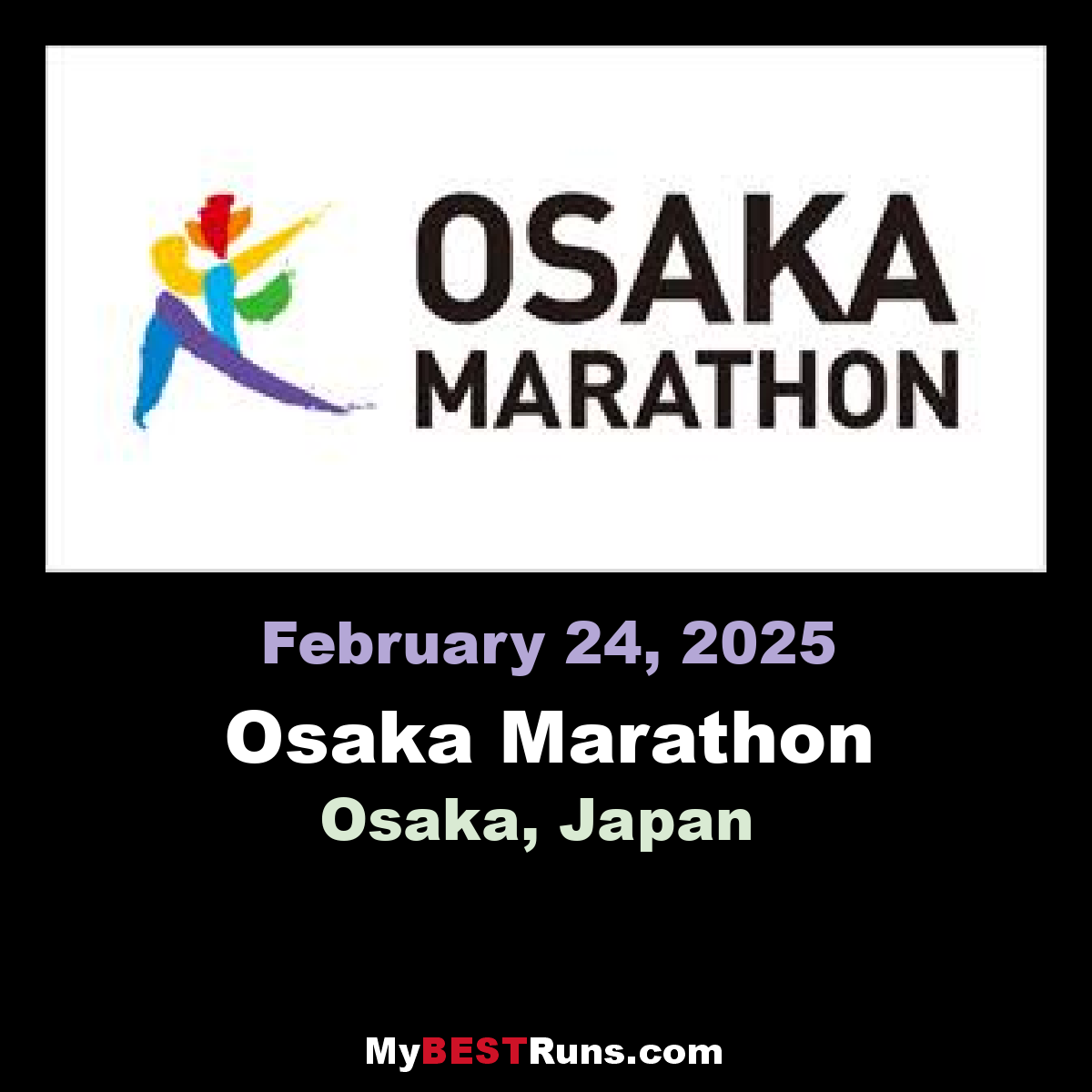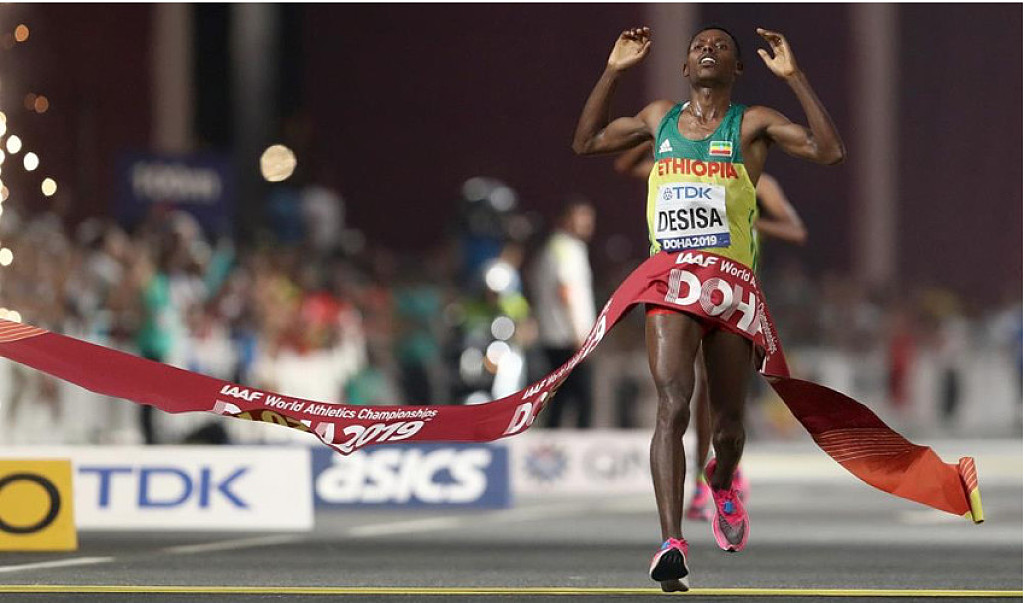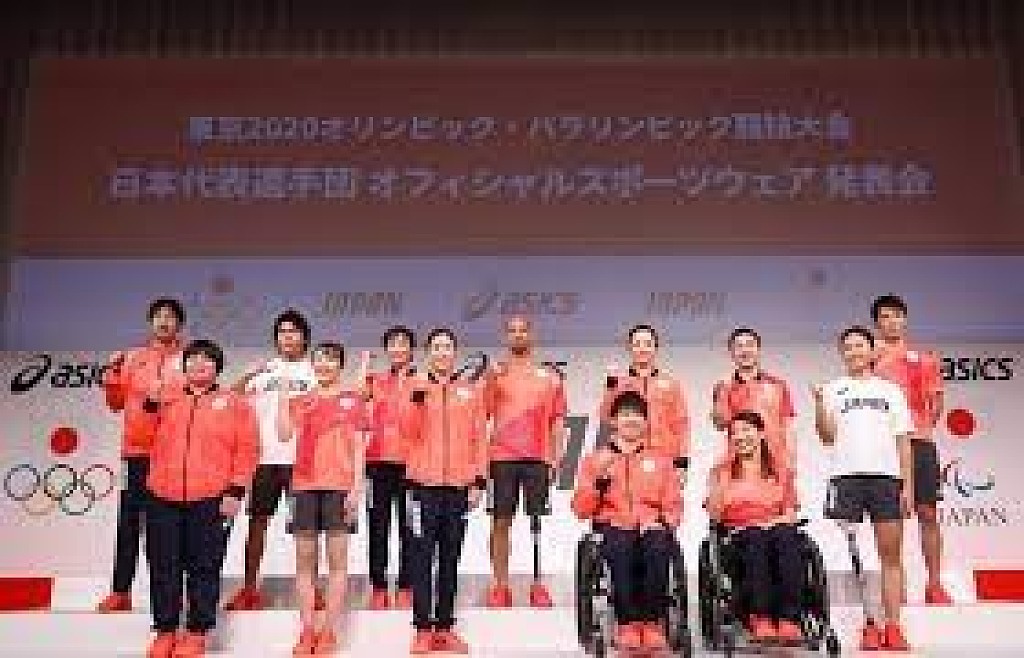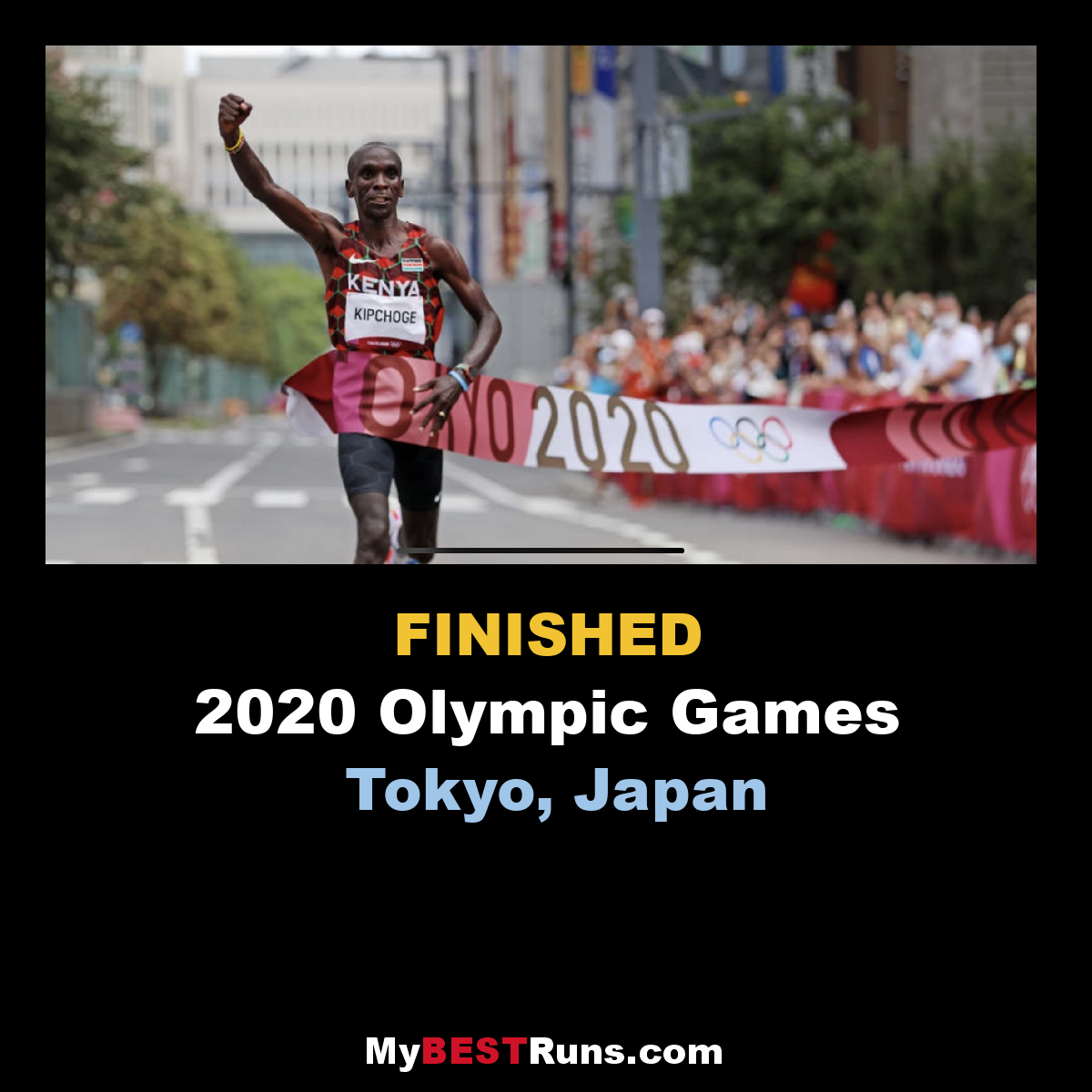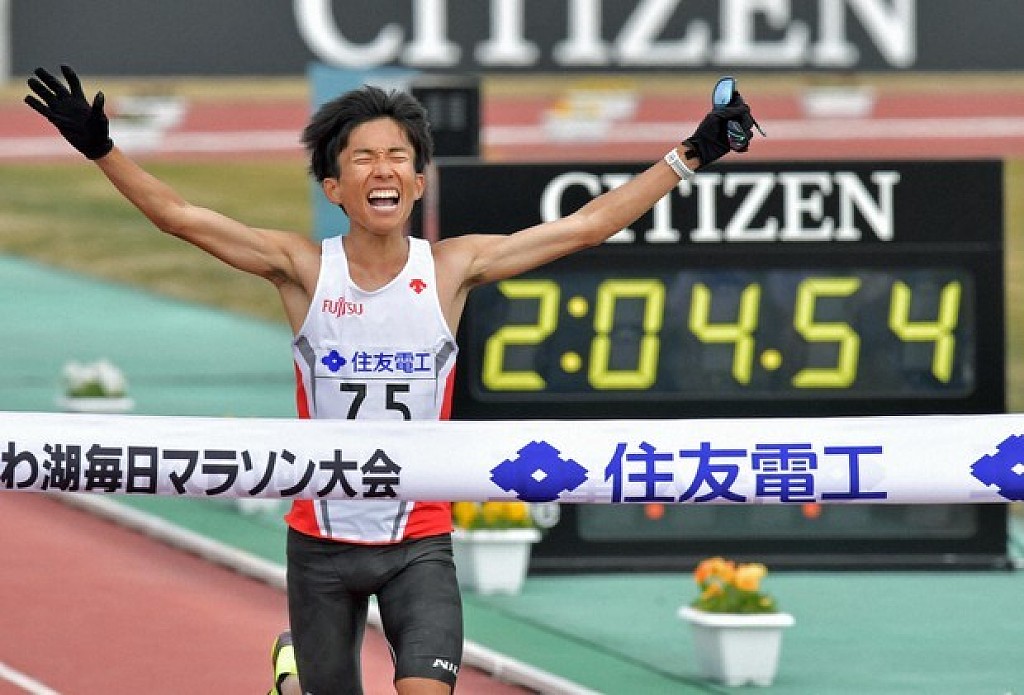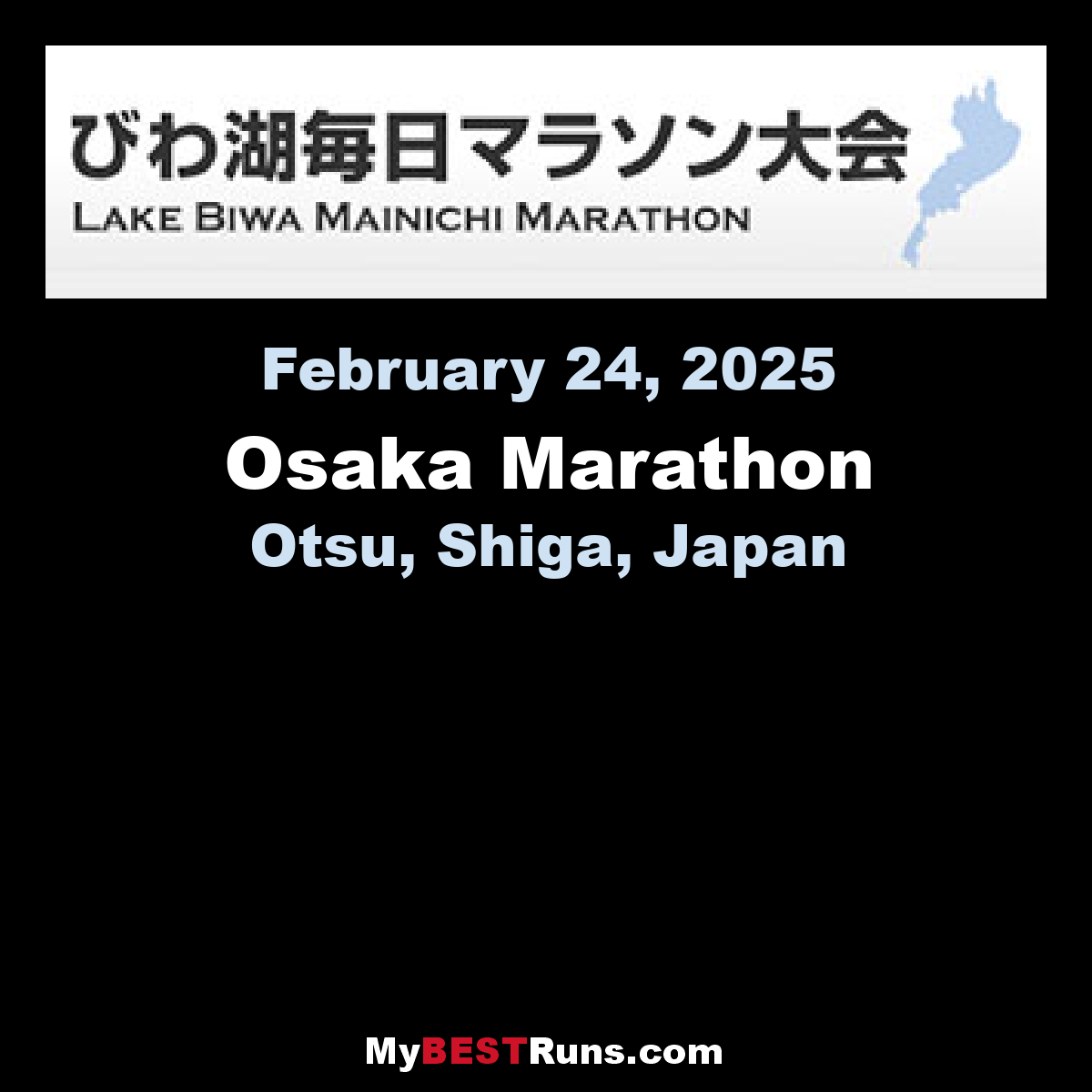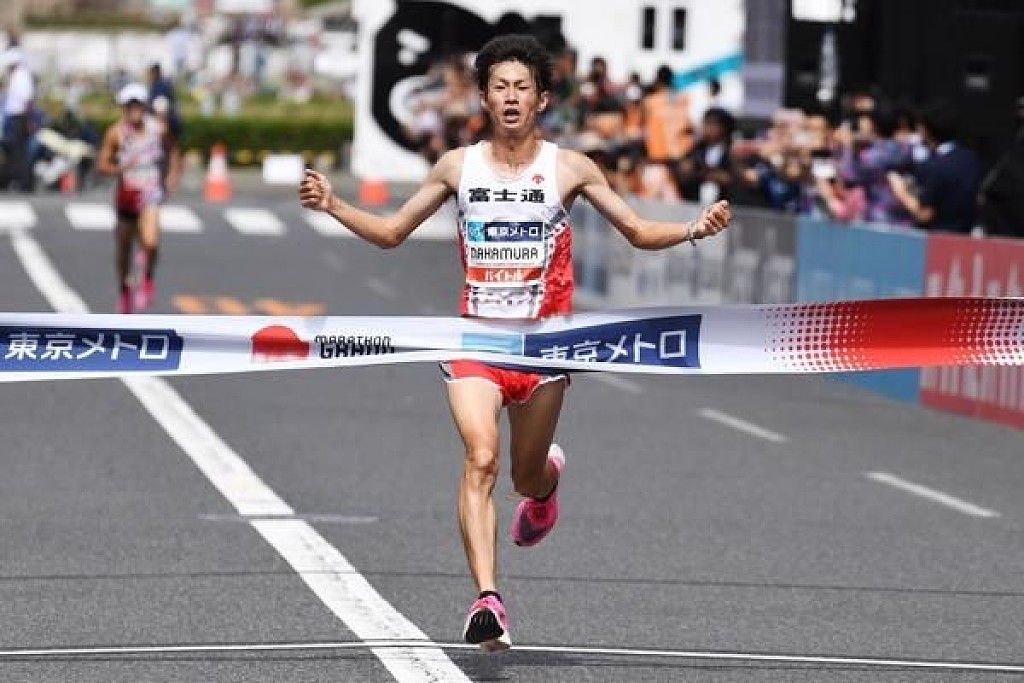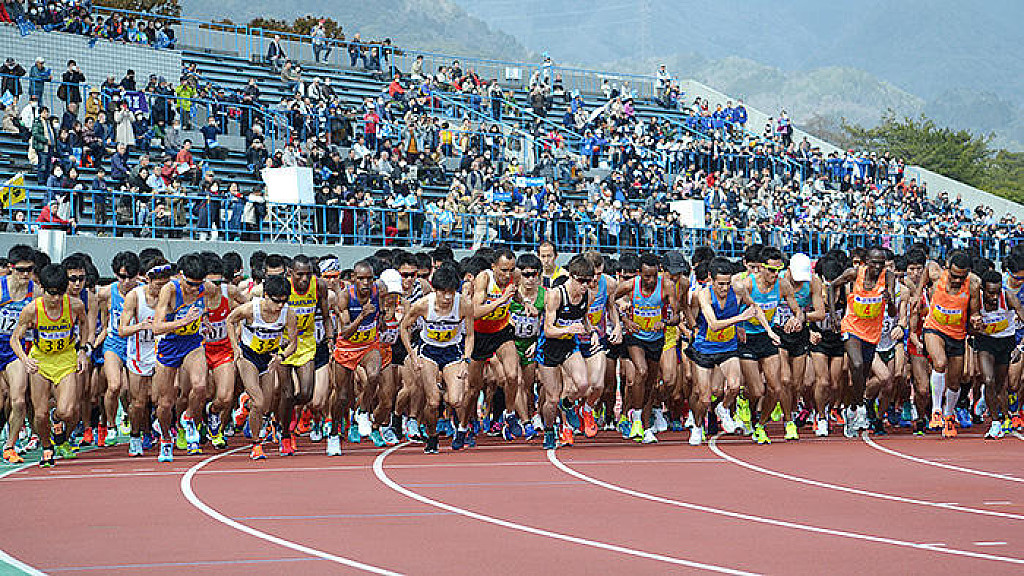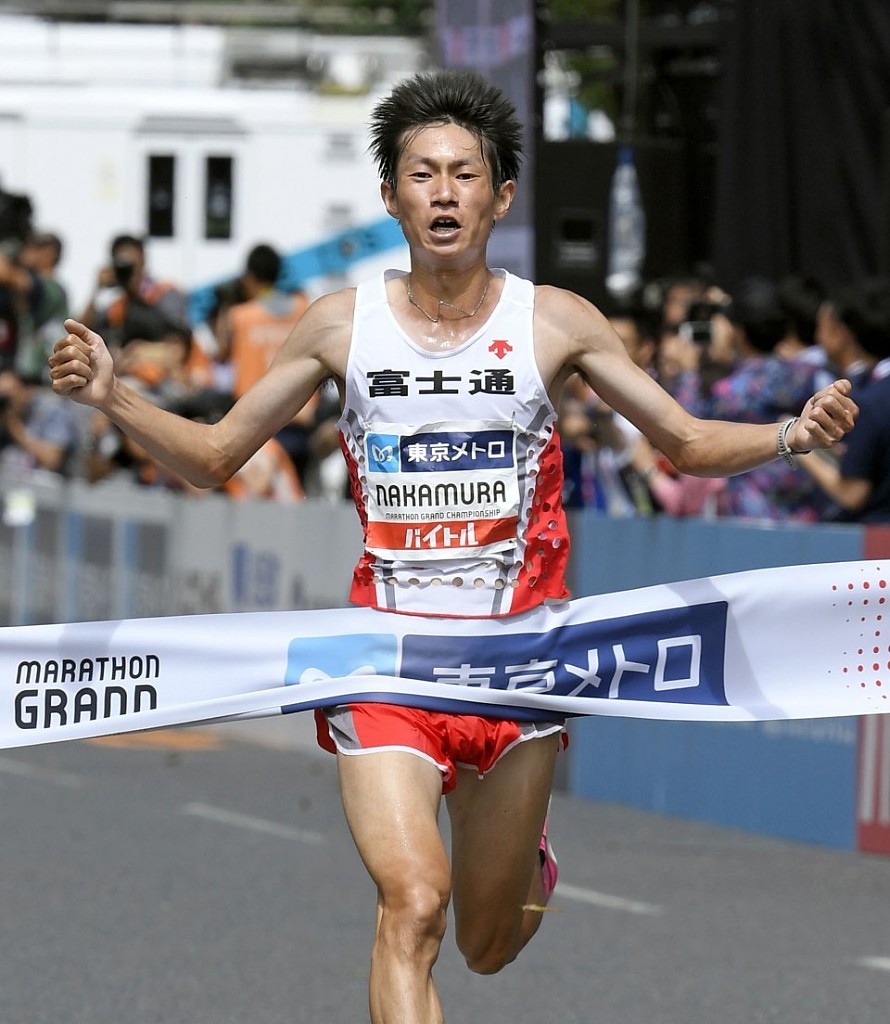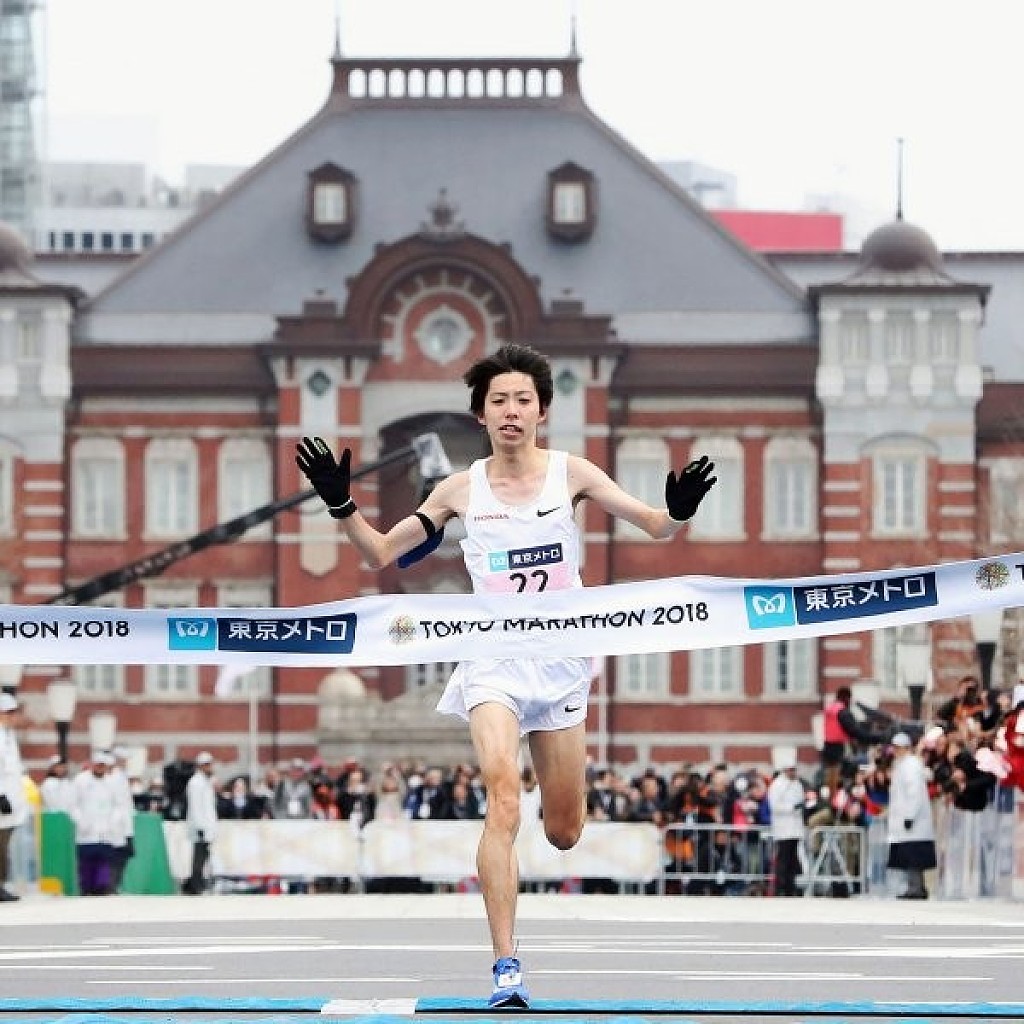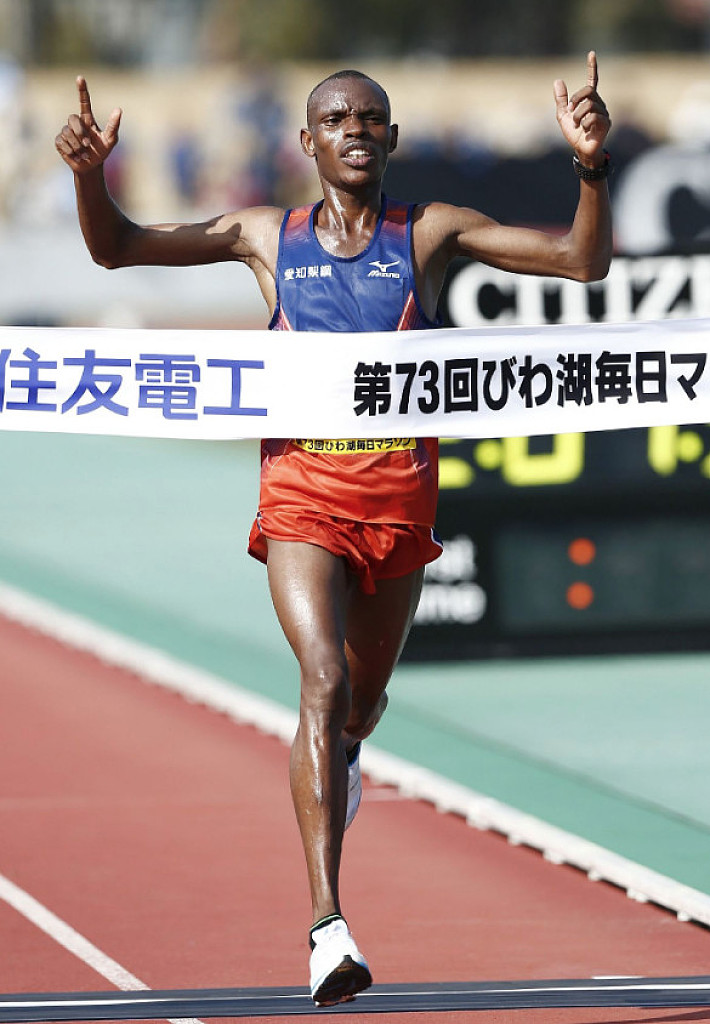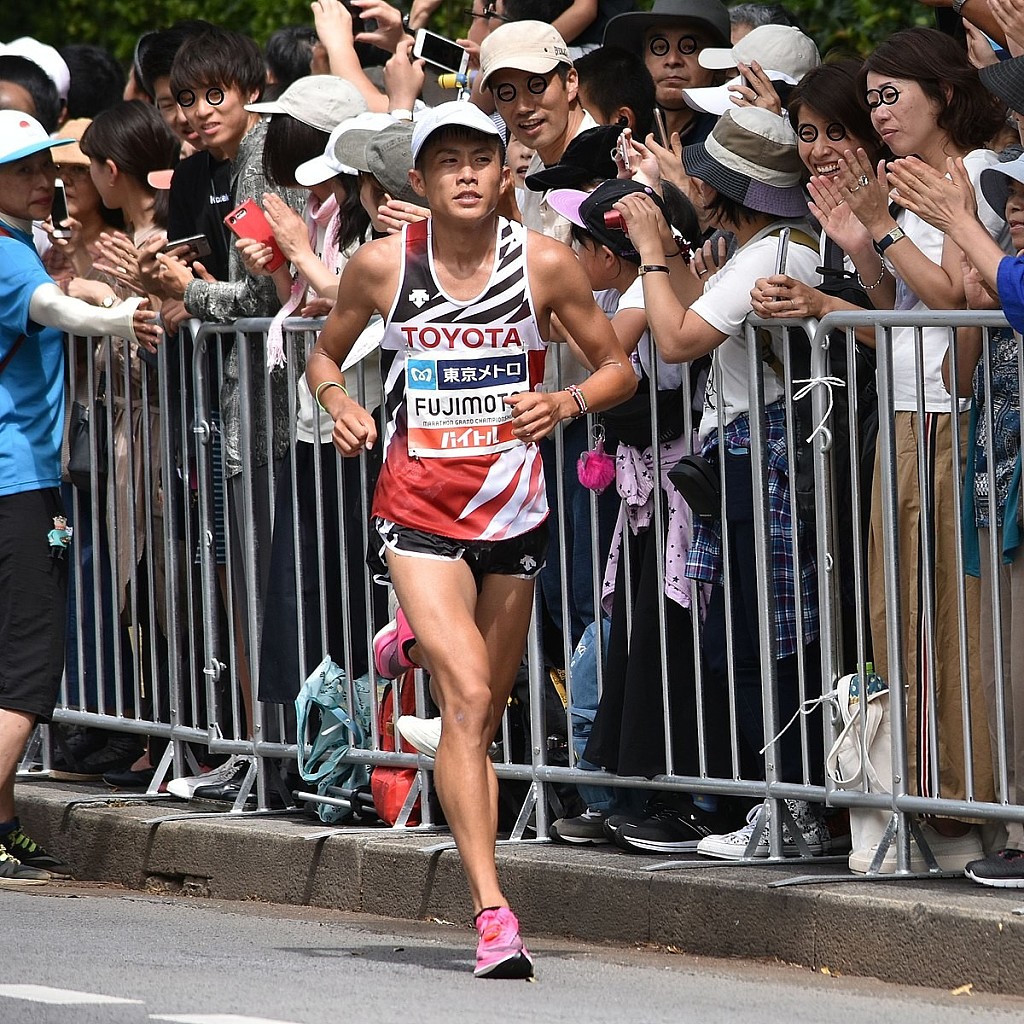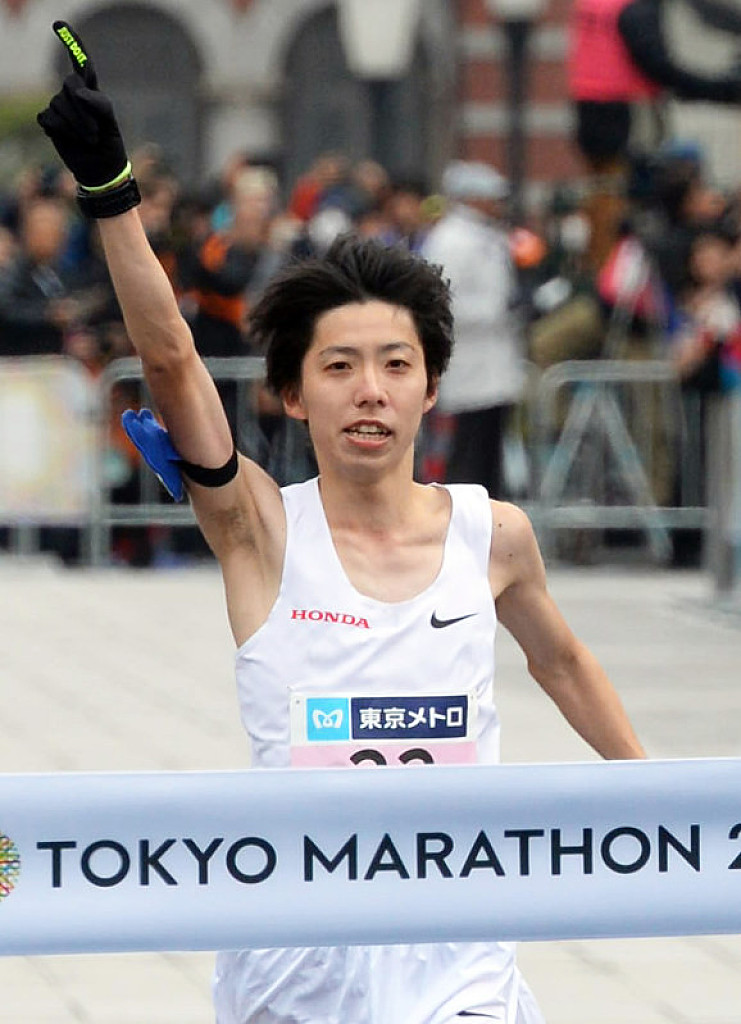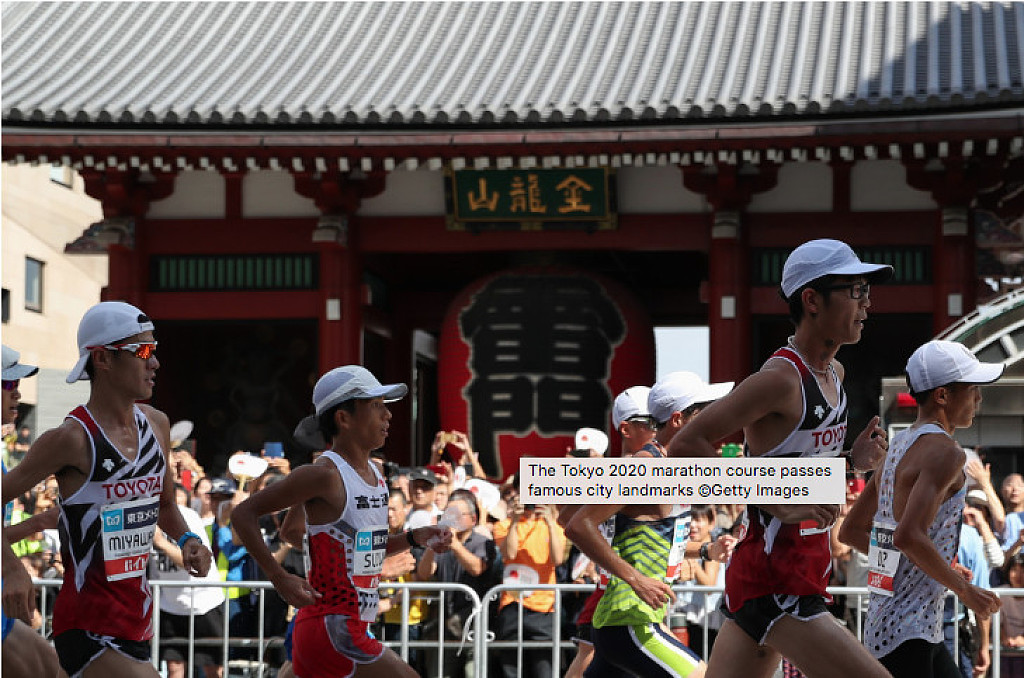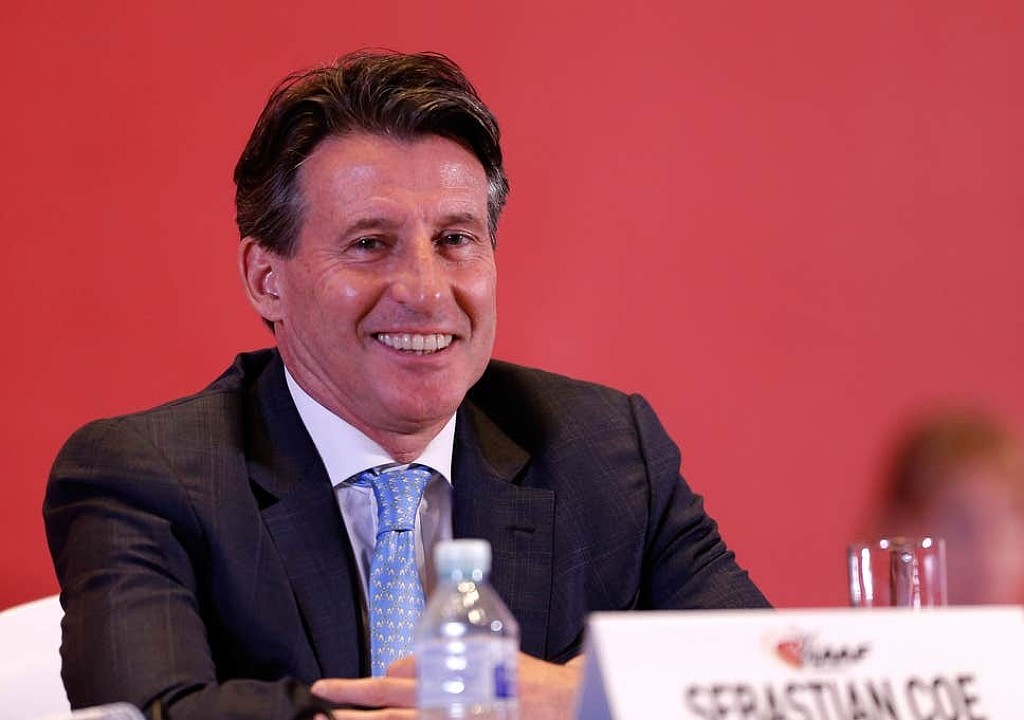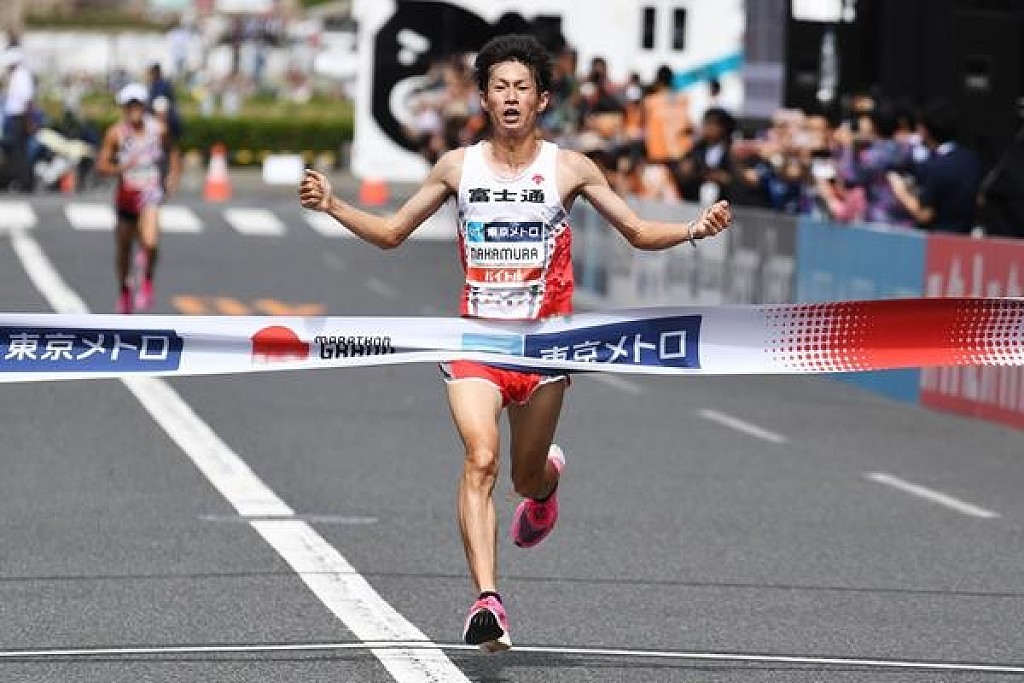Running News Daily
Running News Daily is edited by Bob Anderson. Send your news items to bob@mybestruns.com Advertising opportunities available. Train the Kenyan Way at KATA Kenya and Portugal owned and operated by Bob Anderson. Be sure to catch our movie A Long Run the movie KATA Running Camps and KATA Potato Farms - 31 now open in Kenya! https://kata.ke/
Index to Daily Posts · Sign Up For Updates · Run The World Feed
Articles tagged #Shogo Nakamura
Today's Running News
World half bronze medalist Kamulu and Tokyo olympic marathon trials winner Nakamura take humid Hokkaido Marathon
2018 World Half Marathon Championships bronze medalist Pauline Kamulu Kaveke and Tokyo Olympics marathon trials winner Shogo Nakamura survived tough conditions, 22˚C at the start with 82% humidity, sunny skies and almost no wind, to take the 2024 Hokkaido Marathon Sunday in Sapporo.
Both running their debuts, Kamulu and Shiho Tachizako ran steadily around 2:28-flat pace surrounded by a group of amateur men, staying together until just before 30 km when Tachizako started to fade. Kamulu struggled with the hot conditions late in the race and could only watch the clock as sub-2:30 slipped away, looking very tired as she crossed the finish line in 2:31:04.
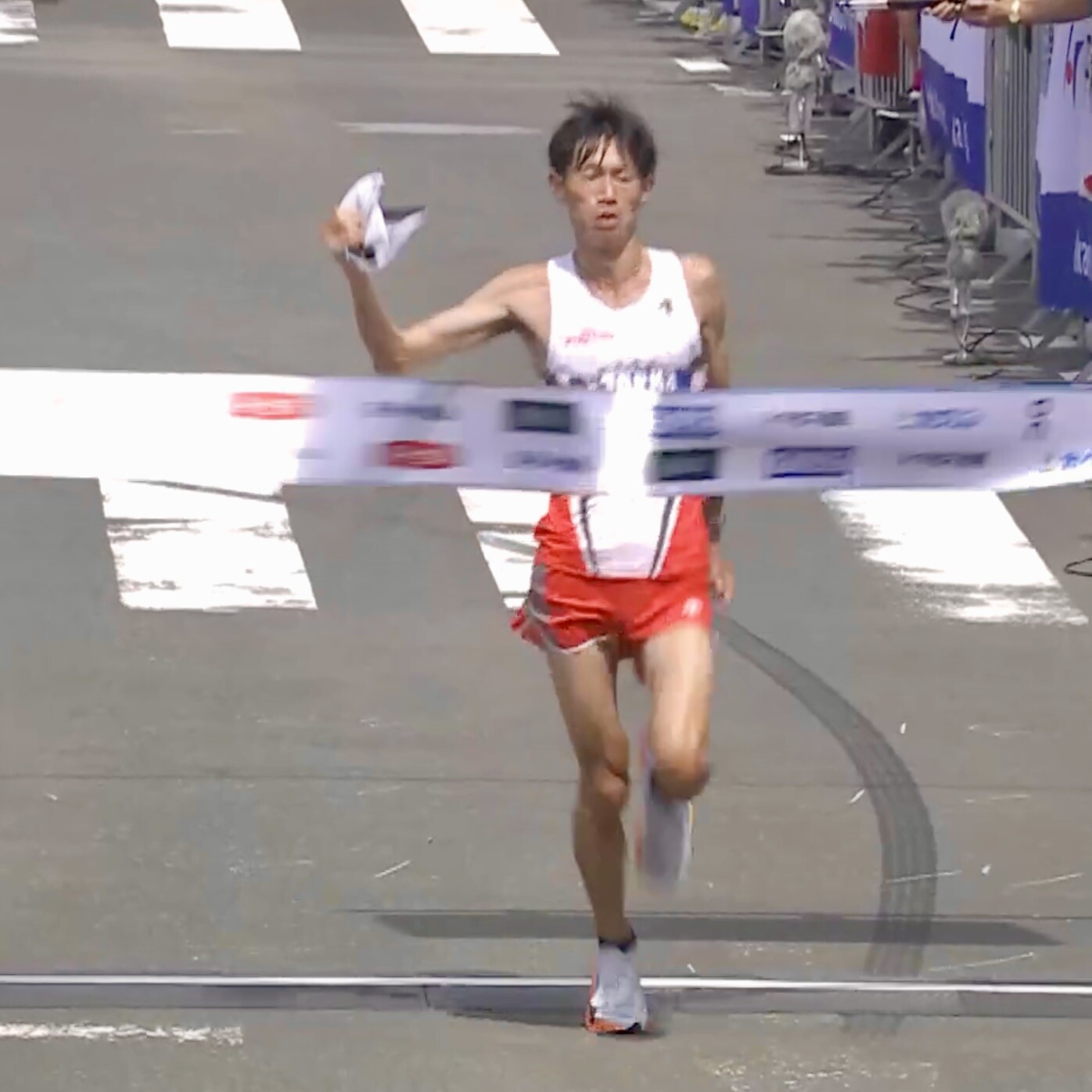
Tachizako faded to 2:33:47 for 2nd, but even that was good enough to easily beat the rest of the field, with last year's 2nd-placer Ayano Ikeuchi 3rd in 2:35:26 in her third marathon so far this year.
Nakamura had said pre-race that he didn't care about time and was only focused on getting in the win, and that was exactly how he ran, ignoring the early action and staying near the front of the main pack until he made his initial move at 30 km.
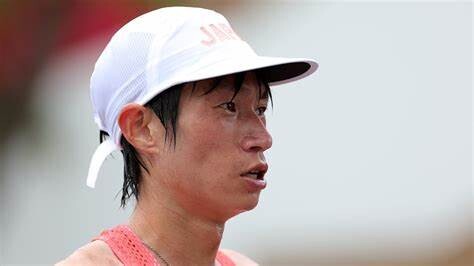
That got rid of the pretenders, with only 2:08~2:10 men Takeshi Soma, Atsumi Ashiwa and Masaru Aoki, and 2:18 amateur Ryuichi Yoshioka getting back on board. Soma countered with an attack after 34 km, but Nakamura quickly reeled him back in and made his real move with 5 km to go.
Yoshioka was the only one to try to follow, but it was all Nakamura the rest of the way, scoring his first win since his Olympic trials victory in 2019 with a 2:15:36 for 1st. Yoshioka was elated in the home stretch with a 2:16:28 for 2nd, a 2-minute PB and the only runner male or female in the top 10 to PB. Nakamura's toughest competition still standing when he dropped his big move, Ashiwa out kicked Soma and Aoki for 3rd in 2:16:40.
Osaka Marathon winner Kiyoto Hirabayashi ran Hokkaido as a training run, jogging in to a 70th-place finish in 2:41:19. The next-fastest man on paper after Hirabayashi with a 2:07:58 win in Beppu-Oita in February, Japan-based Ethiopian Derese Workneh was a DNF near 30 km.
by Brett Larner
Login to leave a comment
Hokkaido Marathon
The Hokkaido Marathon, inaugurated in 1987 with just 439 participants, has evolved into one of Japan's premier marathons, attracting nearly 20,000 runners annually. Held every August in Sapporo, Hokkaido, it stands as the nation's only full-scale summer marathon. The race commences and concludes in Sapporo's Odori Park, offering a scenic course that weaves through the city's landmarks, including the vibrant...
more...Koyama and Inoue among invited runners for Osaka Marathon
A total of 19 invited runners were announced Monday for the upcoming Osaka Marathon, including Paris Olympics-bound Naoki Koyama and 2018 Asian Games gold medalist Hiroto Inoue.
The Feb. 25 marathon is the first of the two remaining "final challenge" races for Japan's third and last spot in the men's marathon at this summer's Olympics.
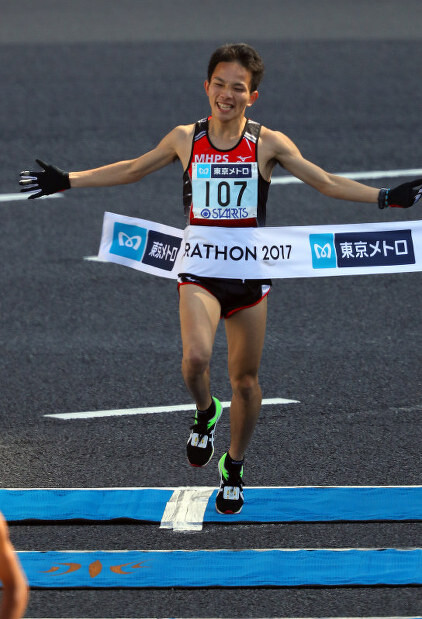
Shogo Nakamura, who competed at the Tokyo Olympics in 2021, will also run, but 2018 Boston Marathon winner Yuki Kawauchi will not take part due to an injury, according to organizers of the Osaka race.
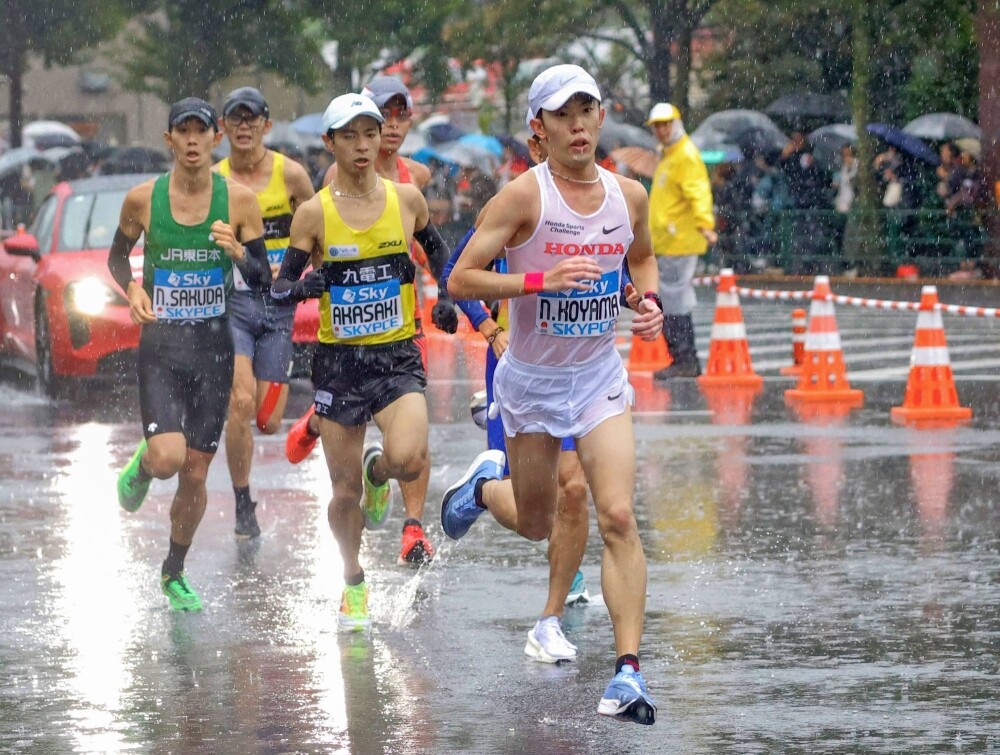
Koyama and Akira Akasaki have already clinched their Olympic berths by finishing first and second, respectively, at last October's Marathon Grand Championship in Tokyo.
The Tokyo Marathon, scheduled for March 3, wraps up the competition schedule for Olympic selection.
by The Japan Times
Login to leave a comment
Osaka Marathon
Let’s run for fun in the shadow of Osaka Castle, the symbol of the city!This is a fun running event, which welcomes international runners from all corners of the global alongside families, friends and Japanese runners; all running together through the colored leaves of Osaka Castle Park on a crisp autumn morning. The fun and pleasure of running is universal! ...
more...Tokyo Olympics preview: Mens marathon
Five years ago, marathon world record-holder Eliud Kipchoge was the last champion crowned at the Olympic Games in Rio. He'll be aiming to replicate that achievement in Sapporo on 8 August, the final day of the postponed Tokyo 2020 Games.
Successfully defending any title over the marathon distance is no easy task. Only two runners have managed the feat at the Olympics: 1960 and 1964 champion Abebe Bikila of Ethiopia and East German Waldemar Cierpinski, the winner in Montreal in 1976 and Moscow in 1980. Over the course of his career, Kipchoge has arguably achieved more than both of those legendary marathoners: he's broken the world record, which currently stands at 2:01:39, and pieced together a 10-race unbeaten streak over a five-year stretch which included victories at most of the world's most prestigious races, a record unparalleled in modern marathon running.
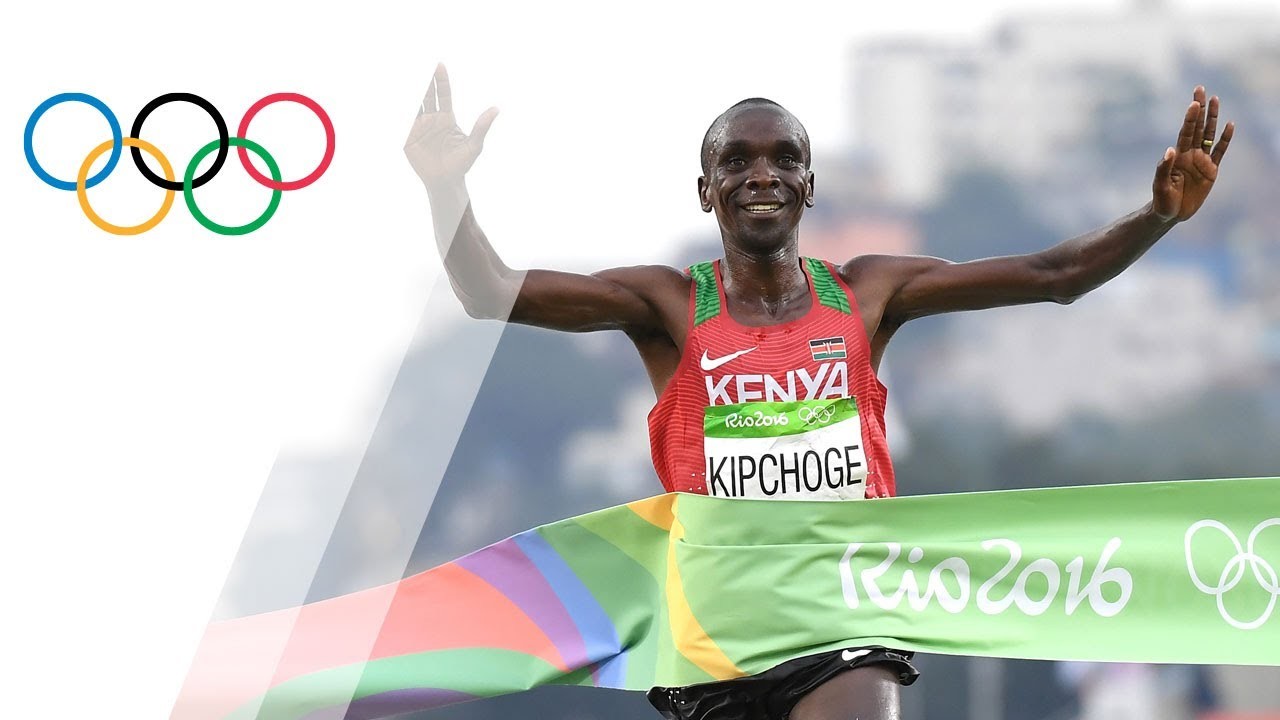
That streak finally came to a halt at the London Marathon in 2020, where he finished eighth in 2:06:49, the slowest marathon of his career. But he bounced back in April, winning in Enschede in 2:04:30. Four men have run faster this year in a season still battered by pandemic cancellations, but it was nonetheless a performance which illustrated that Kipchoge is fully capable of winning, even at 36. Indeed, he's widely considered a grand old man of the distance these days, a characterisation that certainly fits at this year's Games when only 11 of the 115 entrants are older.
Picking favourites in a marathon is difficult at the best of times. Throw a pandemic into the picture that ravaged the road racing season over the past 16 months, and it becomes a near impossible task.
That said, Kipchoge can expect a strong challenge from the Ethiopian squad, led by world champion Lelisa Desisa, Shura Kitata and Sisay Lemma. Desisa hasn't run under 2:06 since 2018 but his performance in Doha's difficult conditions in 2019 bodes well for a mid-summer marathon that is also expected to endure warm temperatures. Kitata won the London race that ended Kipchoge's streak, clocking 2:05:41, while Lemma has raced well in recent big city marathons, finishing third in both Berlin in 2019 (2:03:36) and Tokyo (2:04:51) in 2020.
But both of Kipchoge's teammates have run faster more recently, suggesting ambitions to claim more than one podium spot. Lawrence Cherono and Amos Korir earned their spots after finishing second and fourth at last year's Valencia Marathon in 2:03:04 and 2:03:30, respectively, the second and fourth fastest times of 2020.
Stephen Kiprotich, the 2012 Olympic champion and 2013 world champion, leads the Ugandan squad, returning for another shot after a 14th-place finish in Rio. But his most recent top-two finish dates back to 2017 when was second in Fukuoka so Ugandans will have higher hopes for Felix Chemonges, who has a 2:05:12 lifetime best from the 2019 Toronto Marathon, and Fred Musobo, whose 2:06:56 best was set in Daegu in 2019.
Belgian Bashir Abdi could also be factor. The 32-year-old improved his national record to 2:04:20 at the Tokyo Marathon last year. Other notables include Galen Rupp, the 2016 bronze medallist, who earned his return ticket after his victory at the US trials in Atlanta in February last year.
The marathon-mad host nation's hopes lie with Suguru Osako, who broke his own national record with a 2:05:29 run at the Tokyo Marathon in 2020, finishing fourth. He'll be joined by Marathon Grand Championships winner Shogo Nakamura and Yuma Hattori who has a 2:07:27 PB from 2018.
The field also includes Tachlowini Gabriyesos, a 23-year-old Eritrean native who clocked 2:10:55 at the Hahula Galilee Marathon on 14 March to become the first refugee athlete to better an Olympic qualifying standard.
by World Athletics
Login to leave a comment
Japan named host nation’s team for Olympic Games
Japan has named a team of 65 athletes to represent the host nation at the Tokyo Olympic Games.
The line-up features world 20km race walk champion Toshikazu Yamanishi along with four members of the 4x100m squad that took bronze at the World Athletics Championships Doha 2019.
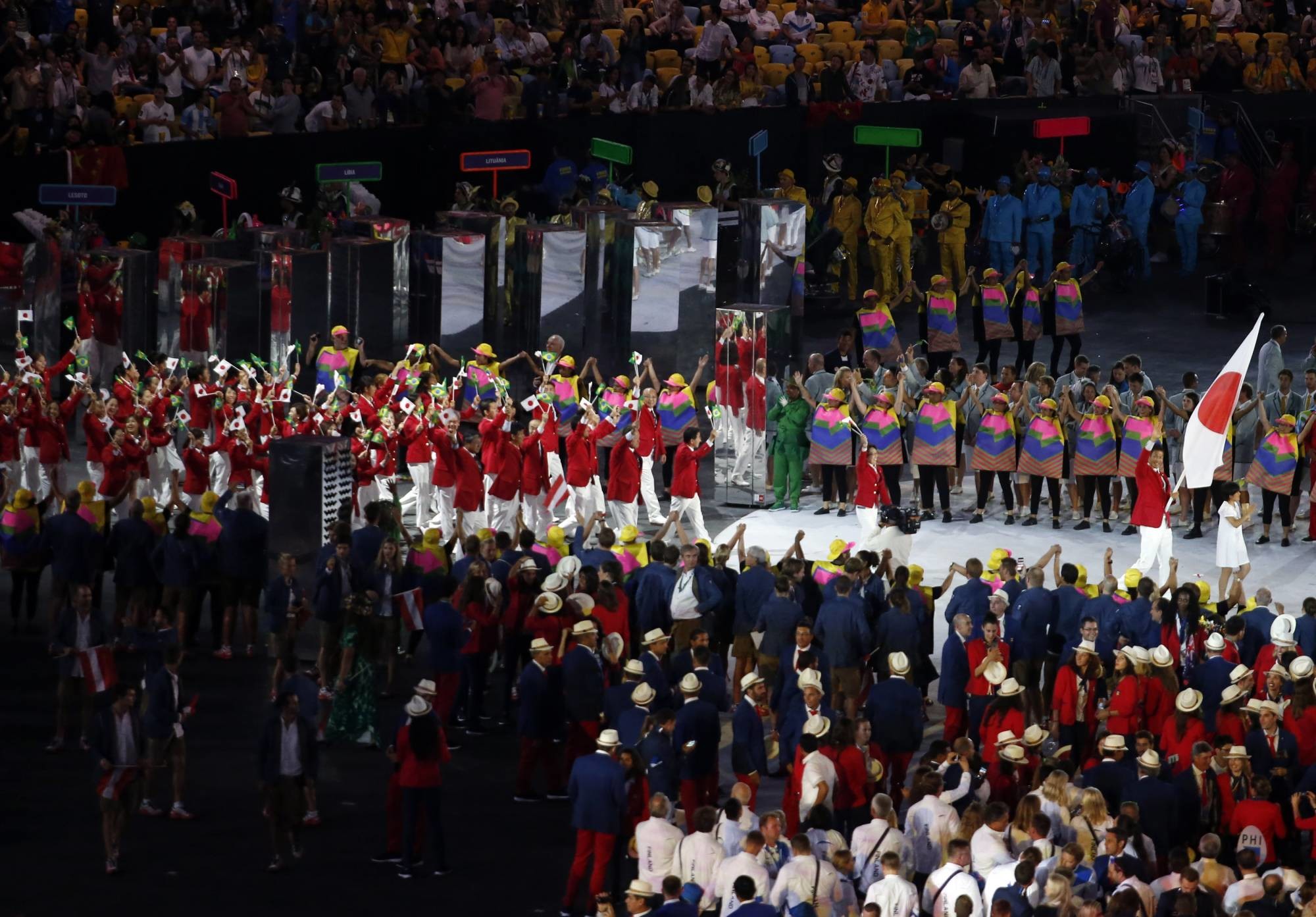
Thirteen individual national record-holders have also been selected, including 100m sprinter Ryota Yamagata, middle-distance runner Nozomi Tanaka, sprint hurdlers Shunsuke Izumiya and Asuka Terada, race walker Masatora Kawano and javelin thrower Haruka Kitaguchi.
Japan had named its marathon squad last year following a highly competitive selection process.
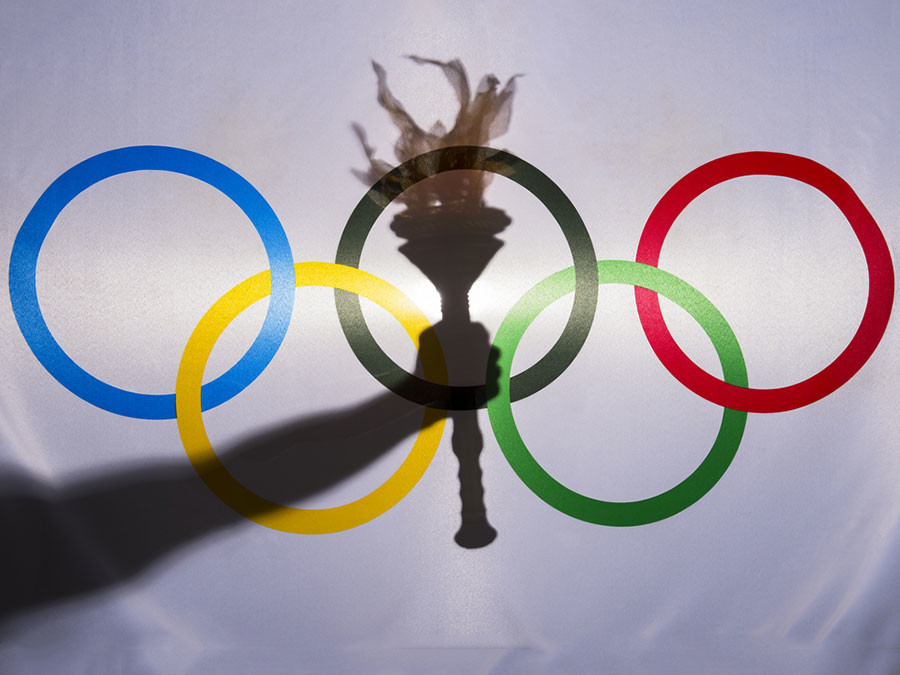
Japanese team for Tokyo
WOMEN
1500m: Nozomi Tanaka, Ran Urabe
5000m: Kaede Hagitani, Ririka Hironaka, Nozomi Tanaka
10,000m: Yuka Ando, Ririka Hironaka, Hitomi Niiya
Marathon: Mao Ichiyama, Honami Maeda, Ayuko Suzuki
3000m steeplechase: Yuno Yamanaka100m hurdles: Masumi Aoki, Ayako Kimura, Asuka Terada
Javelin: Haruka Kitaguchi
20km race walk: Nanako Fujii, Kaori Kawazoe, Kumiko Okada
4x100m: Hanae Aoyama, Yu Ishikawa, Mei Kodama, Ami Saito, Remi Tsuruta,
MEN
100m: Yuki Koike, Shuhei Tada, Ryota Yamagata
200m: Shota Iizuka, Hakim Sani Brown, Jun Yamashita
400m: Julian Walsh
5000m: Yuta Bando, Hiroki Matsueda
10,000m: Akira Aizawa, Tatsuhiko Ito
Marathon: Yuma Hattori, Shogo Nakamura, Suguro Osako
3000m steeplechase: Ryoma Aoki, Ryuji Miura, Kosei Yamaguchi
110m hurdles: Shunsuke Izumiya, Taioh Kanai, Shunya Takayama
400m hurdles: Kazuki Kurokawa, Abe Takatoshi, Hiromu Yamauchi
High jump: Takashi Eto, Naoto TobePole
vault: Masaki Ejima, Seito YamamotoLong
jump: Yuki Hashioka, Hibiki Tsuha, Shotaro Shiroyama
Javelin: Takuto Kominami
20km race walk: Koki Ikeda, Eiki Takahashi, Toshikazu Yamanishi
50km race walk: Hayato Katsuki, Masatora Kawano, Satoshi Maruo
4x100m: Bruno Dede, Yoshihide Kiryu, Yuki Koike, Shuhei Tada, Ryota Yamagata
4x400m: Rikuya Ito, Kaito Kawabata, Kentaro Sato, Aoto Suzuki, Julian Walsh.
by World Athletics
Login to leave a comment
Tokyo 2020 Olympic Games
Fifty-six years after having organized the Olympic Games, the Japanese capital will be hosting a Summer edition for the second time, originally scheduled from July 24 to August 9, 2020, the games were postponed due to coronavirus outbreak, the postponed Tokyo Olympics will be held from July 23 to August 8 in 2021, according to the International Olympic Committee decision. ...
more...Kengo Suzuki clocked 2:04:56 National Record to Win final Lake Biwa Mainichi Marathon
Set to be absorbed into the mass-participation Osaka Marathon as its elite men's field next year the same way the old Tokyo International Marathon was swallowed whole by the Tokyo Marathon, the Lake Biwa Mainichi Marathon wrapped its 76 years as a freestanding event with a bang, a big one, Sunday in Otsu.
Everything was on. The conditions were good, light clouds, 7ËšC, 57% humidity and light breezes at the start. The field was good, 24 men having run sub-2:10 in the last three years and 52 sub-2:12. The pacing was good, the lead trio of pacers hitting almost every split within a couple of seconds of the target 2:58/km and the second group pacers even closer to the 3:00/km target. The shoes were good, across brands.
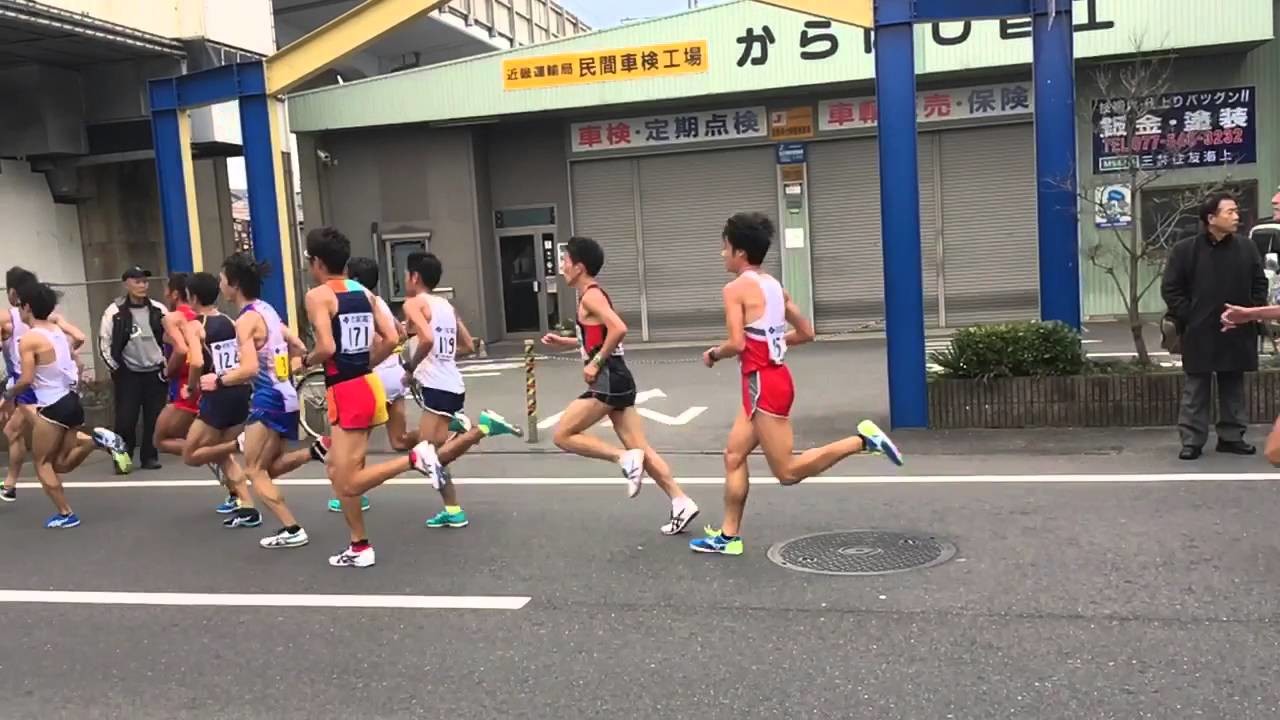
30 or so people went out on pace to go under the 2:05:29 national record in the first group, with what looked like about a hundred on mid-2:06 pace in the second group. Everything went smoothly and steadily, nature taking its course and whittling down both groups until there were only 12 left up front and a couple of dozen in the second group at 25 km when most of the pacers stepped off. Just past that point, Hiroto Inoue (Mitsubishi Juko), the second-fastest man in the field at 2:06:54, made a surge to break away. Lone remaining pacer James Rungaru (Chuo Hatsujo) took his time reeling Inoue back in, just five others still with him when he regained contact 3 km later.
When Rungaru stopped at 30 km past Ageo City Half Marathon winner Simon Kariuki (Togami Denki) took over with five Japanese men, Kengo Suzuki (Fujitsu), Hidekazu Hijikata (Honda), Shuho Dairokuno (Asahi Kasei), Masato Kikuchi (Konica Minolta) and Inoue, strung out single-file behind him. Kariuki slowed slightly to 2:59-3:00/km, but even so Dairokuno, Kikuchi and Inoue started to strain and lose touch. Suzuki and Hijikata, on the other hand, were even smoother and calmer than Kariuki, staying right there behind him.
The only changes until just after 36 km were the gap between the front and back trios widening and Suguru Osako's NR starting to slip out of reach. But at the 36 km drink station Suzuki made his move, one that will be studied for years to come. As they approached the #6 special drink table where Kariuki's bottle waited, Suzuki pulled out from behind him to his right. Just as Kariuki looked to his left to grab his bottle Suzuki attacked, and when Kariuki looked back up the gap was already about 5 m.
It was brilliant. And Suzuki, the 2017 National University Half Marathon champ in 1:01:36 and 2017 World University Games half marathon silver medalist and who made a similar move near 20 km in the MGC Race Olympic trials that ultimately helped his older teammate Shogo Nakamura win, was just getting going. For almost every one of the final 6 km he split in the 2:51~53/km range, bringing the NR back into sight, then 2:05:15, then 2:05:00.
With a final surge in the last 200 m of the track he stopped the clock at 2:04:56, the first Japanese man to break 2:05, 1:17 under former world record holder Wilson Kipsang's course record, and a PB by 5 and 1/2 minutes. "I didn't expect this kind of time at all," he said post-race. "In my other marathons to date I've slowed down in the last part, so the focus today was on finishing hard. I knew that was the right time to make my move." Still just 25, Suzuki's career goal is the Paris Olympics. Unluckily for him, the Project Exceed 100 million yen bonus program for a new national record has already run out. Let's hope he's got another chance to earn that kind of payday before Paris.
Behind him, Hijikata, only 23 and running just his second marathon after a 2:09:50 debut in Tokyo last year right before his graduation from Koku Gakuin University, dropped Kariuki for 2nd in 2:06:26. Likewise doing his second marathon after a 2:28:47 debut at Lake Biwa last year, 25-year-old Kyohei Hosoya (Kurosaki Harima) ran almost perfectly even splits, going through halfway in 1:03:21 to come up from the second group and run down Kariuki, Inoue, Dairokuno and half marathon NR holder Yusuke Ogura (Yakult) for 3rd in 2:06:35. Both Inoue and Ogura held on for sub-2:07 PBs, Inoue 4th in 2:06:47 and Ogura 5th in 2:06:51.
And behind them, the hits kept coming. 10 men ran 2:07. 13 ran 2:08. 14 ran 2:09. Almost all were PBs or debuts. 28 men sub-2:09, 42 sub-2:10. 174 men sub-2:20, the most ever, anywhere, by a long shot. With no Beppu-Oita, Nobeoka or Tokyo this season that may have been a factor of Lake Biwa being the only game in town, but still, can you believe those numbers, even with the usual Japanese depth? With the shoes these days times might not be worth what they used to be, but even if you factor in a couple of minutes this was about as good a demonstration of the sheer depth of quality of the marathon development system here as you could ask for.
And between that and a great race up front it was the perfect sendoff for Japan's oldest marathon before it disappears next year into the maw of Osakan modernity. Farewell, Lake Biwa. Long may you run.
Login to leave a comment
Osaka Marathon
In 2022 the Lake Biwa Mainichi Marathon and Osaka Marathon were held together. For 2023 the name of the marathon will be Osaka and both men and women can run the race. The original male-only competition was first held in 1946 and, having taken place every year since then, it is Japan's oldest annual marathon race. The early editions of...
more...Olympic Trials Winner Shogo Nakamura withdraws from Lake Biwa Mainichi Marathon
After experiencing mild pain in the outer ankle of his left foot and being diagnosed with peroneal tendonitis, Tokyo Olympics men's marathon trials winner Shogo Nakamura (Fujitsu) has made the decision to withdraw from the Feb. 28 Lake Biwa Mainichi Marathon.
Nakamura will take a few days off to rest and plans to resume light jogging next week. However, in combination with not meeting his performance goals at an intensive training camp last month, he has decided to err on the side of caution and withdraw.
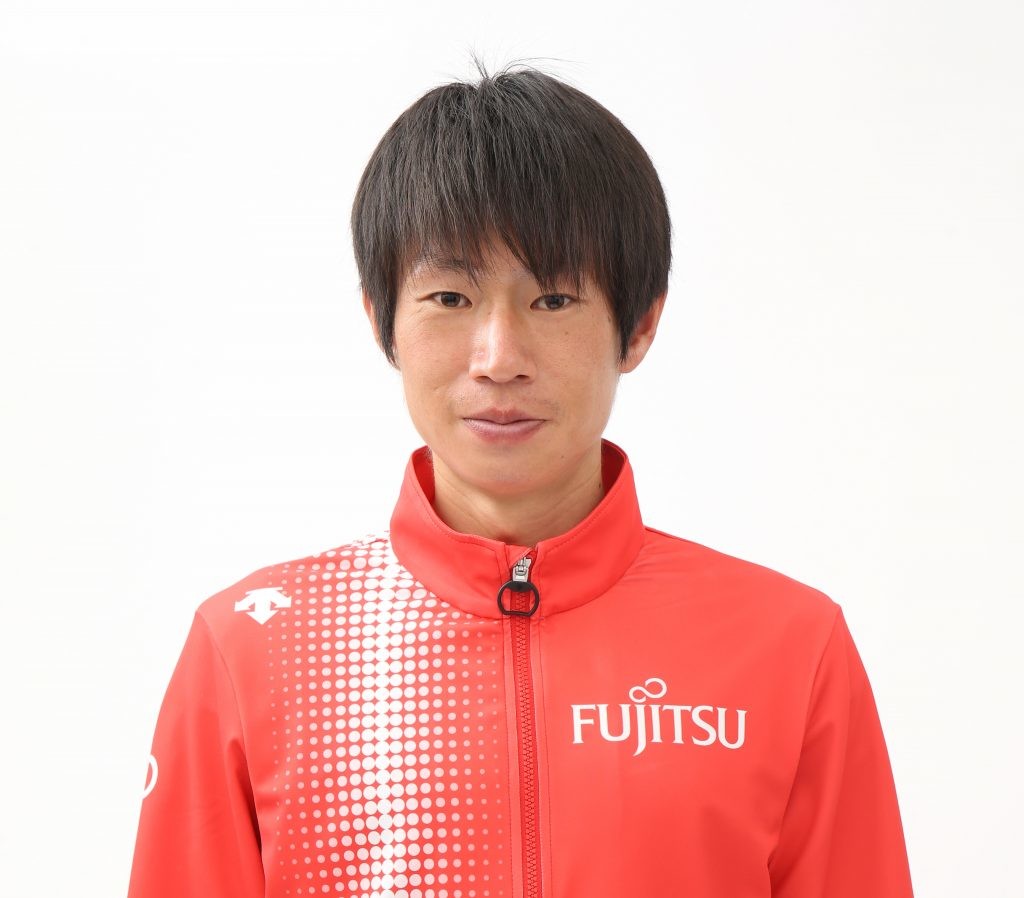
Comments from Nakamura:
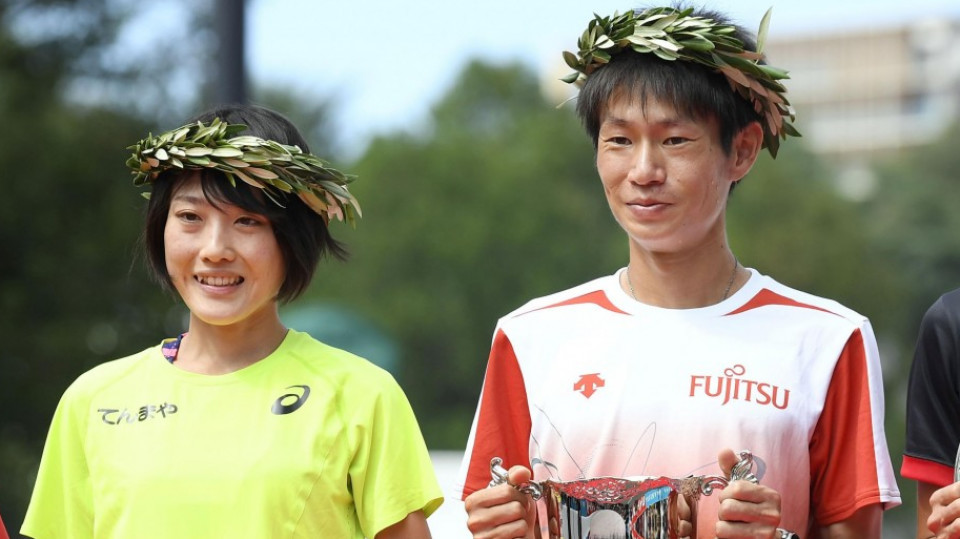
Lake Biwa was going to be my first race since the New Year Ekiden and my first marathon in a long time, so I'd been looking forward to it.
The pain has already faded and doesn't look like it will get in the way of training, but after looking carefully at the situation we decided not to risk more serious injury and to withdraw in favor of being ready for the Tokyo Olympics.
I apologize to everyone who had been expecting to see me run. My first priority is to get back on my feet and do the work necessary to show up at the Tokyo Olympics ready to race. I hope that you will all support me and cheer me on there.
by Brett Larner
Login to leave a comment
Osaka Marathon
In 2022 the Lake Biwa Mainichi Marathon and Osaka Marathon were held together. For 2023 the name of the marathon will be Osaka and both men and women can run the race. The original male-only competition was first held in 1946 and, having taken place every year since then, it is Japan's oldest annual marathon race. The early editions of...
more...Lake Biwa Mainichi Marathon, Japan's first World Athletics gold label race will be discontinued after 2021 Race
In an interview with a source involved in the decision, it was learned on Dec. 17 that the Lake Biwa Mainichi Marathon will be discontinued after next year's 76th edition on Feb. 28, 2021. One of Japan's three major men's marathons, Lake Biwa's position on the calendar as the last chance to qualify for Olympic and World Championships teams meant it has had a long history of being the place where Japan's best marathoners earned to right to compete against the best in the world. But in recent years Lake Biwa has felt increasing pressure from the rise of the Tokyo Marathon, where national records and other fast times have been run almost every year, and Lake Biwa's relevance and value began to come into question. The Osaka Marathon is likely to replace Lake Biwa as a national team selection race in the future.
Having begun in 1946, Lake Biwa is the oldest existing marathon in Japan. Along with the Fukuoka International Marathon and the Tokyo Marathon it is counted as one of Japan's three major men's marathons. But now its long, colorful history is set to come to an end next year when Olympic marathon trials winner Shogo Nakamura (28, Fujitsu) and others stand on its starting line one final time.
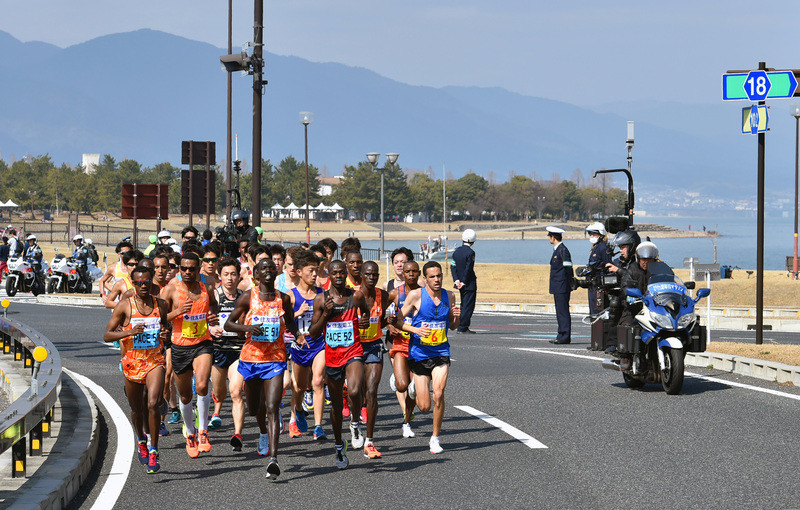
Starting and finishing on the track at Ojiyama Field, Lake Biwa has long been the final selection race for Olympic and World Championships teams. At both the 2012 London Olympics and 2016 Rio de Janeiru Olympics two of the three men's team members earned their places at Lake Biwa. At both the 1964 and 1968 Olympics all three members were chosen there. Its position on the calendar relative to Fukuoka and Tokyo meant the battles were always furious, and those who emerged victorious went on to take on the world.
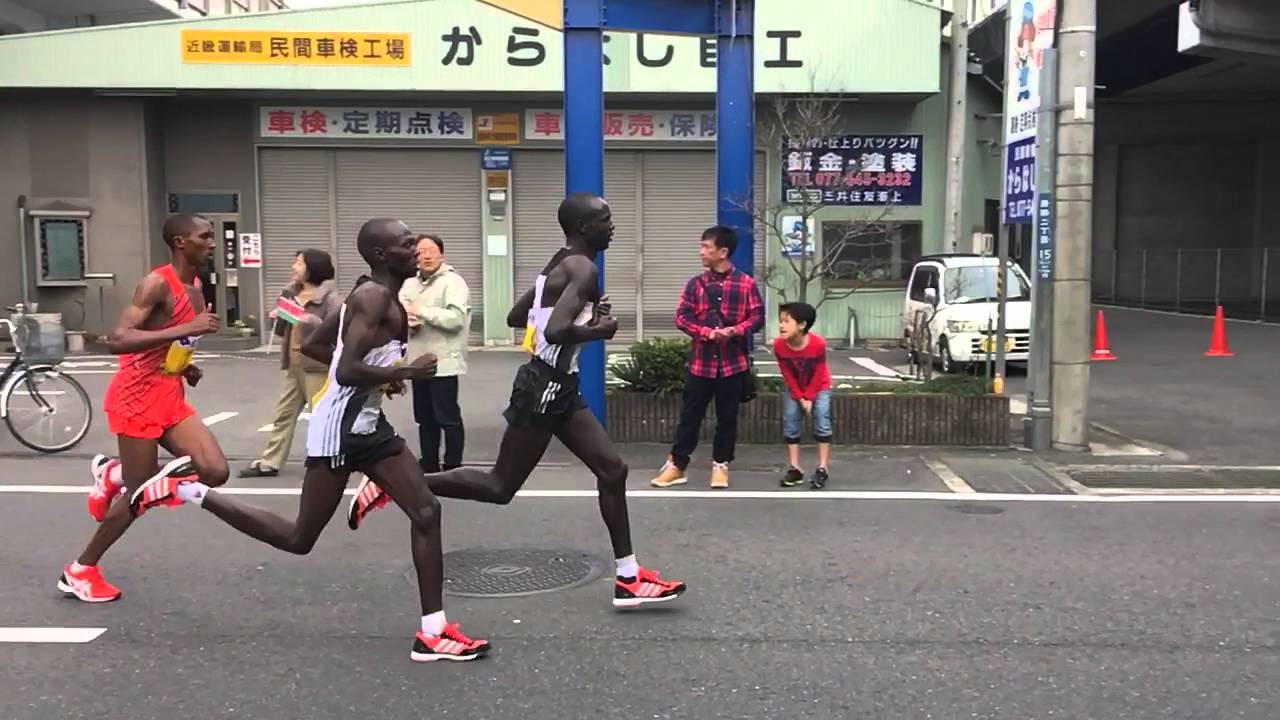
There's no question that Lake Biwa has been the site of countless classic races and a vital part of Japan's marathon tradition, but in recent years its relevance has faded. One of the major factors in this was the Tokyo Marathon's change to a faster course in 2017. In 2018 Yuta Shitara (29, Honda) broke the Japanese national record in Tokyo, and two years later Suguru Osako (29, Nike) followed Shitara's lead and did the same. With that record of success, Tokyo has become the first choice for Japanese men targeting fast times.
The outcome of that change for Lake Biwa, an elite-only marathon, was that the athletes who could have provided the fireworks started staying away. With the Tokyo Marathon having moved to Lake Biwa's traditional date the first Sunday in March two years ago, Lake Biwa's shift a week later meant it was now the same day as the Nagoya Women's Marathon, hiding it in the shadows even further. The race's viability, financial and otherwise, came into question.
According to those involved, the Osaka Marathon is the most likely candidate to replace Lake Biwa as a national team selection event. With 35,000 people running on a downtown urban course it is the second-largest marathon in Japan after only Tokyo. With that kind of modern prestige to it, Osaka is highly likely to pick up the selection race label.
Modernity has a way of burying history. The MGC Race, a one-shot selection race for the Tokyo Olympics, was a major success. Those in power are leaning toward using the same kind of single trials race for the 2024 Paris Olympics. With the coronavirus crisis an ongoing issue, this is a period of transition. The Japanese marathon world isn't immune to those transitional forces, and we can only hope that its reorganization and reformation produce even more exciting races.
by Brett Larner
Login to leave a comment
Osaka Marathon
In 2022 the Lake Biwa Mainichi Marathon and Osaka Marathon were held together. For 2023 the name of the marathon will be Osaka and both men and women can run the race. The original male-only competition was first held in 1946 and, having taken place every year since then, it is Japan's oldest annual marathon race. The early editions of...
more...Olympic Marathon Trials Winner Shogo Nakamura Plans to Run Lake Biwa Mainichi Marathon
On Dec. 15, Olympic marathon trials winner Shogo Nakamura (28, Fujitsu) sat for an online interview from his training base in Tokunoshima, Kagoshima, revealing that he plans to run the Feb. 28 Lake Biwa Mainichi Marathon.
Reporting that his training has been progressing steadily, Nakamura enthusiastically said, "The goal is to win in Lake Biwa to build up some momentum for the Olympics. Time is important too, but the main goal is to win."
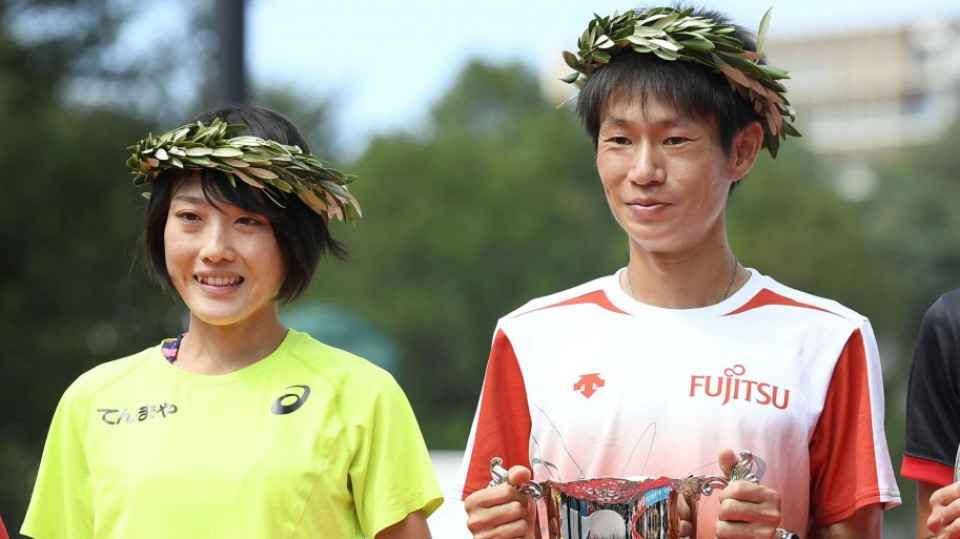
Lake Biwa will be a year and a half since Nakamura's last marathon, the Sept., 2019 MGC Race Olympic trials.
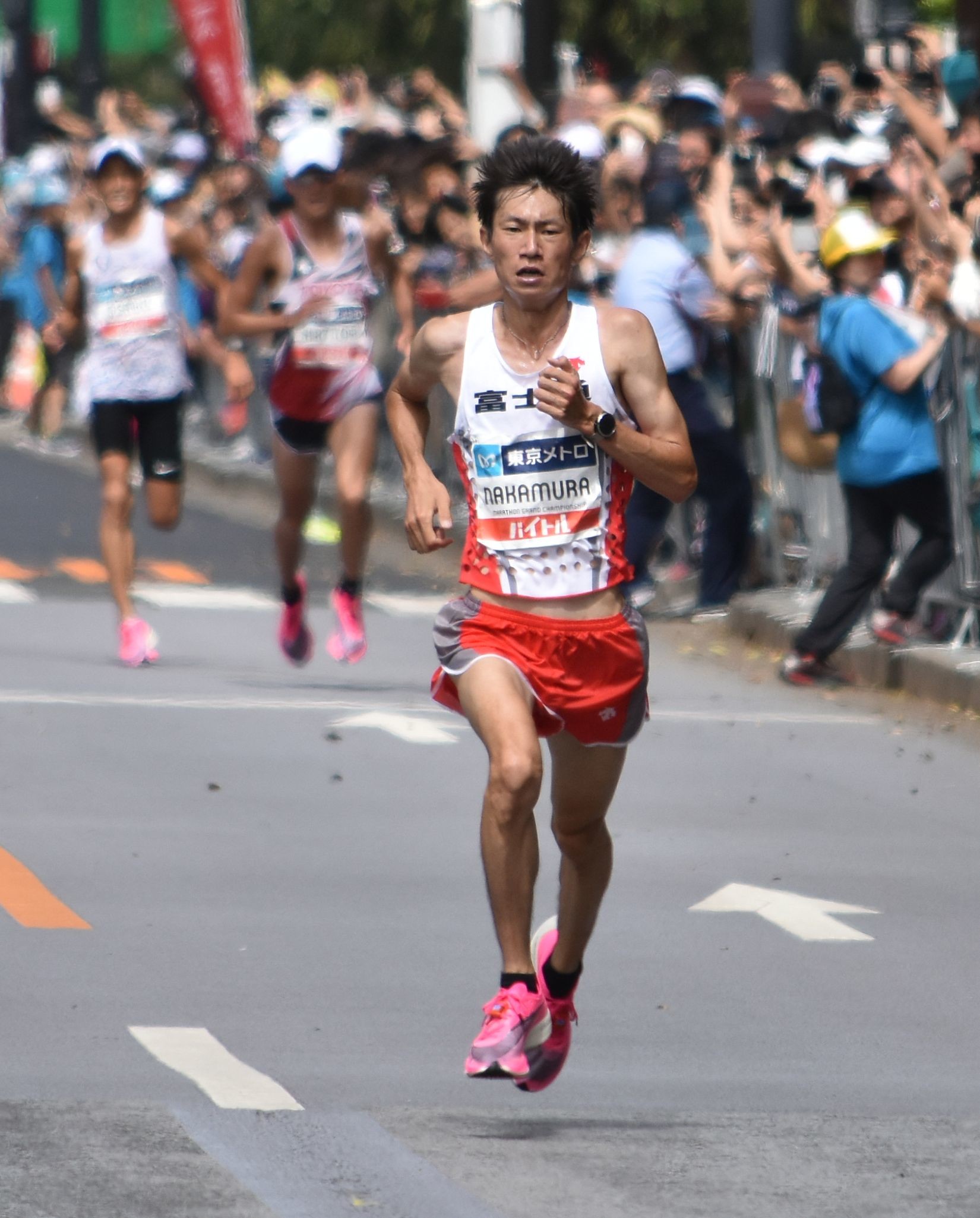
Since his victory there everything about the Olympic marathon has changed, with the venue forcibly relocated to Sapporo and the Olympics themselves postponed for a year. But through it all he has remained true to his path without wavering.
Nakamura ran his debut marathon at Lake Biwa in 2018, and it is no accident that he is returning there for his final marathon before the Olympics. "I was the top Japanese finisher in 2018 and got my place at the MGC Race there," he said. "
But instead of just going back to where it all started, I want to go into the Olympics with a fresh new mindset. I want to win this time, not just be the top Japanese man."
Before that, Nakamura will kick off his Olympic year early at the Jan. 1 New Year Ekiden national corporate men's championships. He expects to be put on either the critically important Fourth or Fifth Stage, but whichever it ends up being, he said, "I want to win my stage and help my team succeed."
by Brett Larner
Login to leave a comment
Osaka Marathon
In 2022 the Lake Biwa Mainichi Marathon and Osaka Marathon were held together. For 2023 the name of the marathon will be Osaka and both men and women can run the race. The original male-only competition was first held in 1946 and, having taken place every year since then, it is Japan's oldest annual marathon race. The early editions of...
more...Like everywhere else, lives and plans in Japan have been put on hold by the global outbreak of the Covid-19 virus
Japan was one of the first countries after China to detect cases of the virus, its first on 16 January, but taking until 7 April for official numbers to climb enough for the national government to declare a state of emergency.
The official response within Japanese athletics has been similar, simultaneously fast and slow. The Tokyo Marathon on 1 March was one of the first outside China to put a stop order on this year’s edition, announcing that it would cancel its mass-participation race and go ahead as an elite-only event. The Nagoya Women’s Marathon on 8 March echoed that days later.
But while other road races joined Nagoya in following Tokyo’s lead, outdoor track season appeared ready to go forward. Some individual events in early April were voluntarily cancelled, but after 2008 Olympic 4x100m silver medallist Naoki Tsukahara was diagnosed with the coronavirus on 30 March, the JAAF Athlete Committee submitted a formal written request to the JAAF that all competitions through the end of May be cancelled or postponed. The JAAF went one better, cancelling or postponing everything through the end of June, including the National Championships.
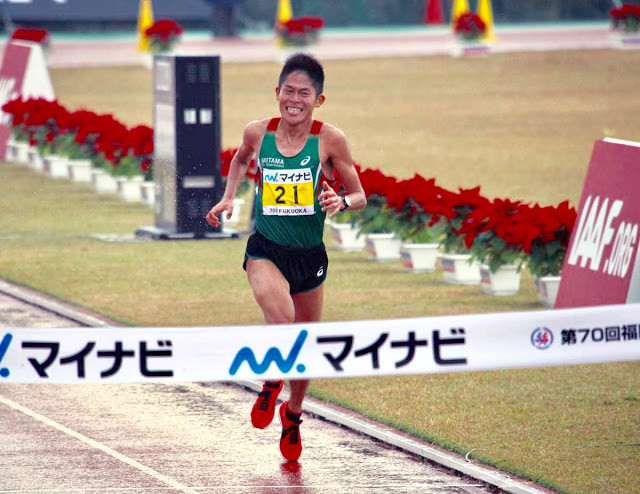
So where did this leave Japan’s athletes? For some, it put fresh-caught dreams straight on to ice. Tokyo, Nagoya and Lake Biwa were the culmination of a three-year process to put together the best Olympic marathon teams Japan could. After these races, on 8 March the JAAF confirmed the line-ups of Honami Maeda, Ayuko Suzuki, and Mao Ichiyama for women, and Shogo Nakamura, Yuma Hattori and Suguru Osako for men.
On 15 March at the 20km race walk Olympic trials, Nanako Fujii and Koki Ikeda joined Kumiko Okada, Toshikazu Yamanishi, Yusuke Suzuki and Masatora Kawano on the Olympic race walk teams. Eiki Takahashi was added a few weeks later.
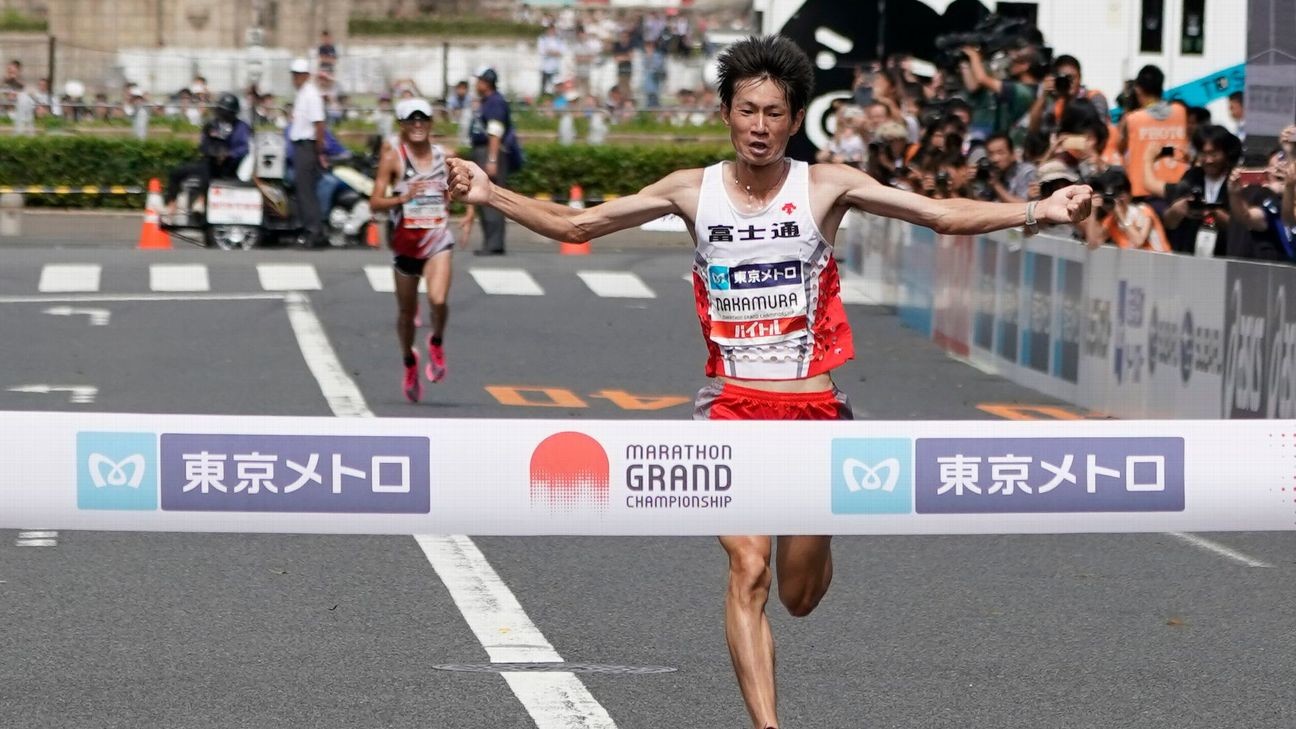
Japanese athletes have it easier. Low official infection numbers and the absence of a lockdown have meant comparatively fewer restrictions, but it’s still meant changes. Yuki Saito, assistant coach for both marathon runner Suzuki and 5000m Olympic team favourite Ririka Hironaka, said: “Suzuki was supposed to get physiotherapy at the Japan Institute of Sport Science, but it’s been closed and that’s been an issue. With 11 athletes on our team, we never have more than four or five running together. We can’t do out-of-town training, and since the declaration of emergency, the university where we do workouts has been closed. We’re probably going to use some nearby parks twice a week. With more people working from home there’ll be more around, so we have to be careful not to come too close.”
Post-collegiate Japanese athletes also have a little more peace of mind thanks to the corporate team system. Team members are salaried employees of the sponsor company, meaning that if the situation stretches on for months, they should still get paid whether or not they compete. That means less financial vulnerability than many professional athletes elsewhere.
But there is still the frustration of carefully worked-out plans thrown out the window and no races on the immediate horizon. Brendan Reilly, agent for all three women on the Olympic marathon squad, said: “We had race and/or training plans in place, and the last of those was scrapped in early April.”
For now, like everywhere, it’s a holding pattern. Like everywhere, Japanese athletes are doing what they can to stay optimistic and focused, and to help transmit the same feelings to the general population as the situation becomes more serious. From the members of the 4x100m team to high jump national record-holder Naoto Tobe to marathon runner Hattori, they’ve been posting workouts the average person can do at home, baking tips, and just positive messages.
“Sport is not only essential to maintain and elevate our physical and mental health,” wrote National Sports Agency commissioner and Olympic gold medallist Daichi Suzuki, “but also gives people pride, joy, dreams, excitement, courage. I hope all of us in the sport community can work together as one to help bring this public health threat under control.”
It’s a sentiment everyone in the sport worldwide can take to heart as we all face uncertainty in the year to come.
by Brett Larner for world Athletics
Login to leave a comment
Macharia Ndirangu wins Lake Biwa Marathon; Shogo Nakamura leads Japanese in seventh
OSAKA – Shogo Nakamura led the Japanese runners in the Lake Biwa Mainichi Marathon on Sunday, finishing in seventh place behind winner Macharia Ndirangu of Kenya.
Nakamura finished the sunny Shiga Prefecture race in 2 hours, 10 minutes and 51 seconds, while Ndirangu crossed the tape with a comfortable lead in 2:07:53.
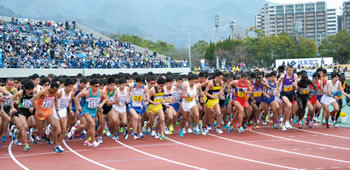
Kenyan Albert Korir (2:08:17) beat his personal best for second, and New Zealand’s Jake Robertson (2:08:26) broke a 34-year national record to finish third. Besides Korir, Nakamura and the top three runners were all making their marathon debut.
The result earned Nakamura a spot in next year’s Grand Championship, a qualifying race for Japanese runners for the 2020 Tokyo Olympics.
“I was desperate in the last kilometer because I didn’t want to miss (qualifying for the Grand Championships),” Nakamura said. “I was able to run with confidence since I trained hard.”
Masato Imai and Takuya Noguchi finished ninth and 10th, respectively.
Login to leave a comment
Osaka Marathon
In 2022 the Lake Biwa Mainichi Marathon and Osaka Marathon were held together. For 2023 the name of the marathon will be Osaka and both men and women can run the race. The original male-only competition was first held in 1946 and, having taken place every year since then, it is Japan's oldest annual marathon race. The early editions of...
more...Taku Fujimoto and Kaena Takeyama will lead Japanese team at the World Half Marathon Championships
The JAAF has announced the Japanese team for next month's World Half Marathon Championships in Gdynia, Poland. Six of the ten men and women are fresh off PBs at the Marugame Half and National Corporate Half earlier this month, with three of the other four having set new bests since December.Set to be elevated from runner-up to winner of December's Fukuoka International Marathon after the bust of Moroccan El Mahjoub Dazza, Taku Fujimoto (Toyota) leads the men's team with an all-time Japanese #2 1:00:06 in Marugame.
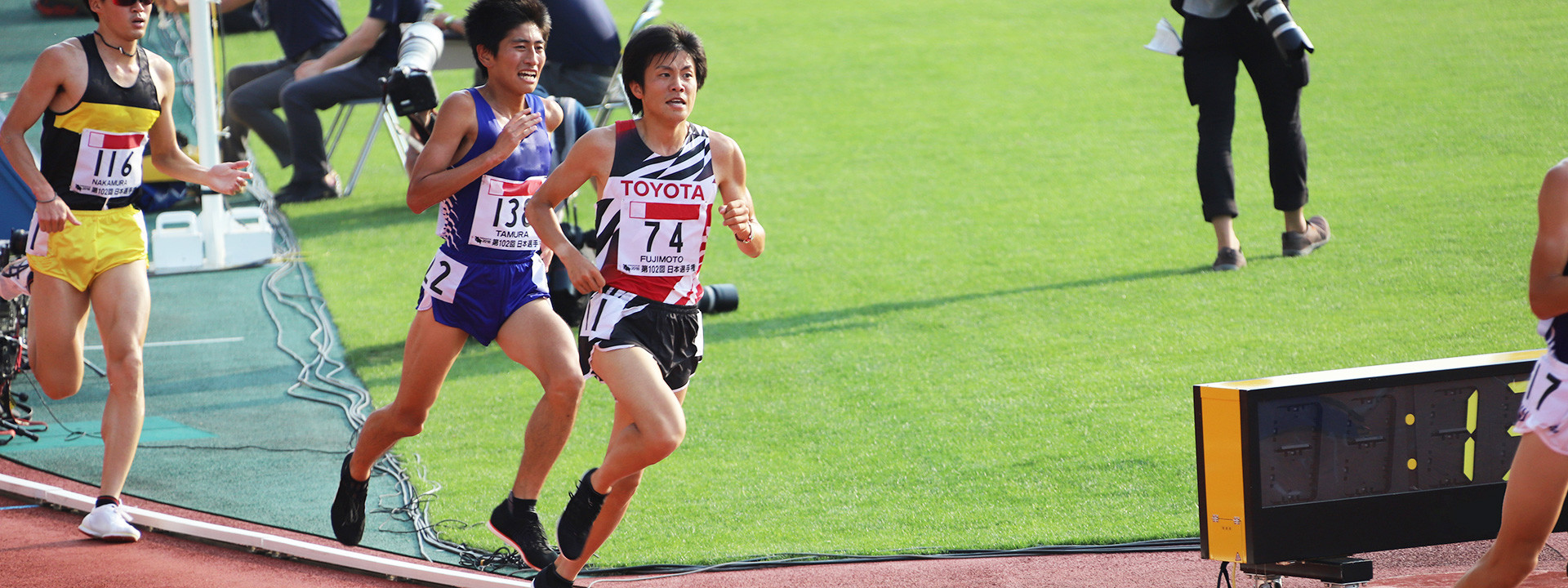
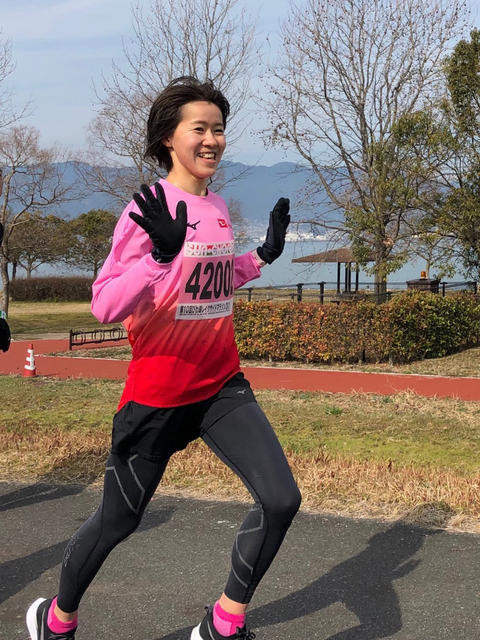
Three other men on the team including amateur Takahiro Nakamura (Kyocera Kagoshima) broke 1:01 at the National Corporate Half two weeks ago. The only man on the the team not to have cleared 1:01 yet is 2020 Olympic marathon trials winner Shogo Nakamura (Fujitsu), who ran a PB 1:01:40 at January's Takanezawa Half.National Corporate Half winner Kaena Takeyama (Daihatsu) is the top-ranked woman with a 1:09:12, followed by Sara Miyake (Tenmaya), 3rd at December's Sanyo Ladies Half in a 1:09:23 debut.
Takeyama's teammate Mizuki Matsuda won January's Osaka International Women's Marathon in 2:21:47 and Miyake's teammate Honami Maeda just set a 30 km national record at Sunday's Ome Road Race, so you know where they're coming from. Rui Aoyama (Univ. Ent.) was just over 1:10 in Sanyo behind Miyake, with Ayumi Hagiwara (Toyota Jidoshokki) the only athlete on either team with a PB over two months old.
Toshika Tamura (Hitachi) is a surprising addition, having run only 1:11:13 for 11th at the National Corporate Half.
by Brett Larner
Login to leave a comment
World Half Marathon Championships
The Chinese city of Yangzhou will host the 2022 World Athletics Half Marathon Championships. China, one of the fastest-growing markets in road running, had 24 World Athletics Label road races in 2019, more than any other country. It hosted the World Half Marathon Championships in 2010 in Nanning and will stage the World Athletics Indoor Championships in Nanjing in 2021. ...
more...Japanese Yuta Shitara will Go For National Record in Tokyo Marathon, I Care About the 100 Million Yen Bonus More Than the Olympics, he says
There's a lot of attention right now on the last remaining spot on the 2020 Olympic marathon team. The first two spots were secured by the 1st and 2nd-placers at the MGC Race, Shogo Nakamura (Fujitsu) and Yuma Hattori (Toyota).
To claim the last remaining spot, someone has to break the Japanese national record and run at least 2:05:49 at this winter's Fukuoka International Marathon, Tokyo Marathon or Lake Biwa Mainichi Marathon. If nobody succeeds, the spot will go to MGC 3rd-placer and current national record holder Suguru Osako (ex-Nike Oregon Project).The favorite to pull it off, after his run at East Japan Shitara talked about his plans for next year's Tokyo Marathon. But he did so in a characteristically Shitaresque way. "As long as you're competing in sports, [the Olympics] are something you aim for," he said.
"I'm running the Tokyo Marathon next year, but I don't really care that much about the Olympics. I care more about getting the 100 million yen bonus [$920,000 USD]. That's my priority. I'm running it for the money. The MGC Race didn't have any prize money, and I'm living right now because I can run. It takes money to run."Making clear his focus on scoring the Project Exceed bonus for breaking the marathon national record again, Shitara seemed to suggest that if he succeeds in winning a place on the 2020 Olympic team he might turn it down. "
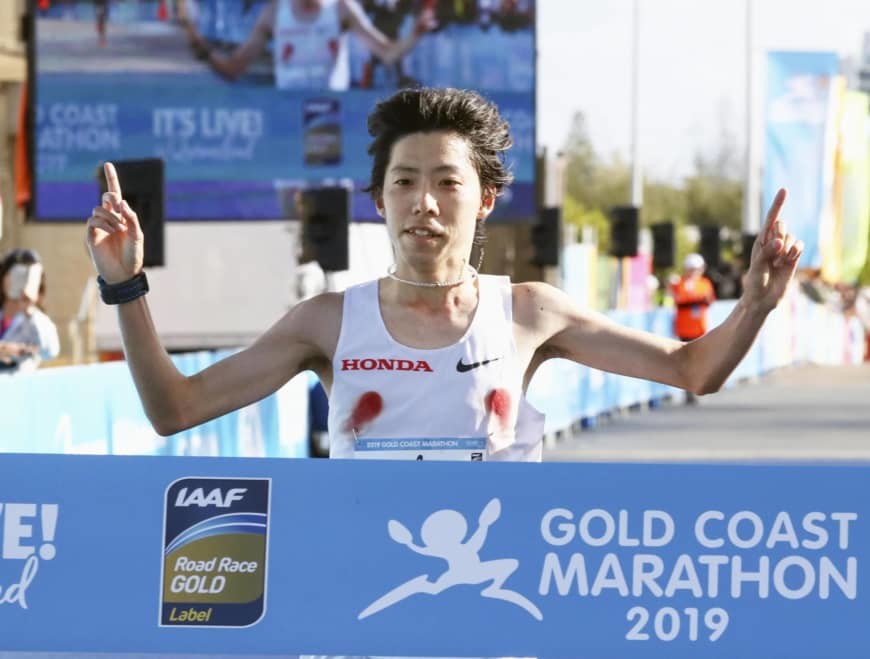
"I'm not going to say myself that I'll run [the Olympics]," he said. "The public would probably rather see Osako run there. He's got better achievements in international competitions.
He'd definitely get the job done, and if you leave it to him there won't be any doubt. I'll leave it to the public to decide." Of the Olympic marathon's move to Sapporo he said, "If that's what has been decided then there's no choice but to obey."Now 27 years old with his own unique way of looking at the world, Shitara expressed a sense of frustration with the current state of the marathon as an event. "It's really boring to run all these races set up by old people these days," he said. "I think we're going into an era when change is going to come from the athletes.
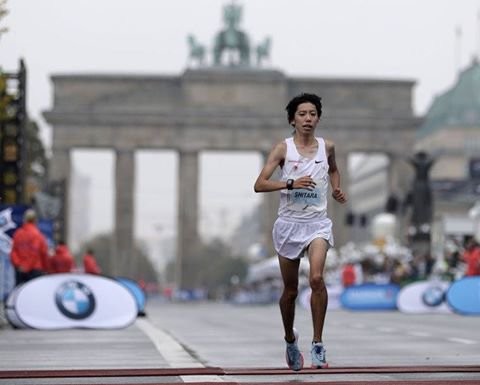
I want to change, and I can't wait for that day to come." The first step is to try to score his second 100 million yen bonus in Tokyo. "It's a race against Osako's record," he said. "I'll be going for it as long as I can run."
Login to leave a comment
Tokyo Marathon
The Tokyo Marathon is a world-renowned annual marathon held in Tokyo, Japan. As one of the prestigious Abbott World Marathon Majors, it attracts elite and amateur runners from around the globe. The race holds World Athletics Platinum Label status, recognizing its high competitive standards, top-tier organization, and international appeal. Sponsored by Tokyo Metro, the Tokyo Marathon has grown into one...
more...Sebastian Coe praises Tokyo 2020 marathon route after test event
International Association of Athletics Federations President Sebastian Coe has praised the Tokyo 2020 Olympic Games marathon course, after a test event was held in the Japanese capital.
The warm-up races on Sunday (September 15), known as the Marathon Grand Championship, saw Japanese athletes bid to win a spot on the host nation's Olympic team.
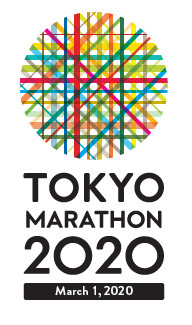
Shogo Nakamura and Honami Maeda won the men's and women's races, respectively, and can now look forward to their home Games next year.
Second-place finishers Yuma Hattori and Ayuko Suzuki also qualified.
Runners followed the Olympic route but the start and finish, at Icho Namiki Avenue in Meiji Jingu Gaien Park, was different., as the Tokyo 2020 Olympic Stadium is still under construction.
Athletes passed by Tokyo landmarks including the Thunder Gate, Imperial Palace, Zojoji Temple and Nihombashi Bridge.
The course is mainly flat and similar to the one used at the Tokyo Marathon, part of the World Marathon Majors series.
"The marathon is a growing highlight of the athletics programme, with imaginative courses that show off the best of cities and are challenging for athletes and fan-friendly," said Coe, a double Olympic gold medallist for Britain over 1,500 metres.
"This marathon course highlights the essence of Tokyo – a blend of tradition and modernity."
The heat at the test event reached up to 28 degrees centigrade with a 75 per cent humidity.
Even warmer conditions are expected when the Olympics are held in July and August, a major headache for organisers after dozens of heat-related deaths in Tokyo.
The Olympic marathons start-time has already been moved back to 6am to avoid the hottest parts of the day.
Organisers used the test event to assess issues they may face next year.
Login to leave a comment
IAAF´s president Sebastian Coe praises Tokyo 2020 marathon route after test event
International Association of Athletics Federations President Sebastian Coe has praised the Tokyo 2020 Olympic Games marathon course, after a test event was held in the Japanese capital.
The warm-up races on Sunday (September 15), known as the Marathon Grand Championship, saw Japanese athletes bid to win a spot on the host nation's Olympic team.
Shogo Nakamura and Honami Maeda won the men's and women's races, respectively, and can now look forward to their home Games next year.
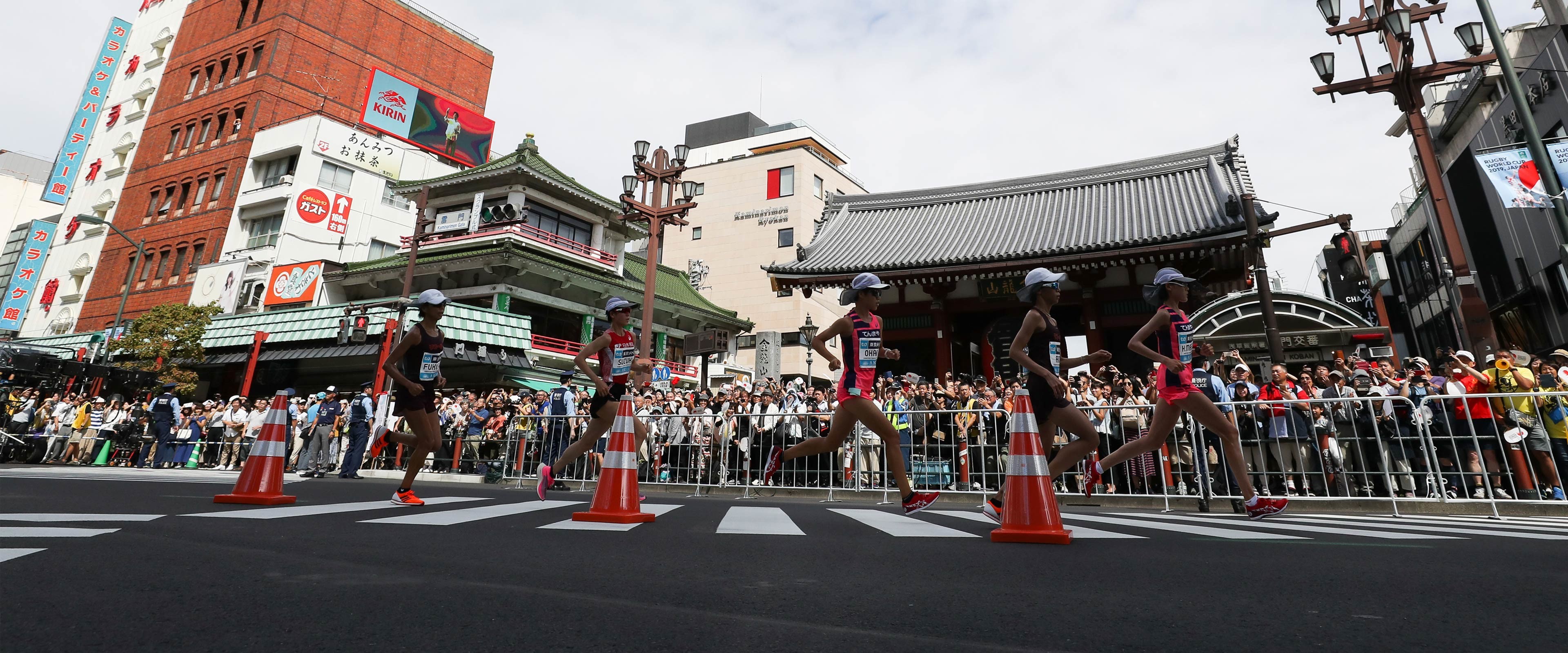
Second-place finishers Yuma Hattori and Ayuko Suzuki also qualified.
Runners followed the Olympic route but the start and finish, at Icho Namiki Avenue in Meiji Jingu Gaien Park, was different., as the Tokyo 2020 Olympic Stadium is still under construction.
Athletes passed by Tokyo landmarks including the Thunder Gate, Imperial Palace, Zojoji Temple and Nihombashi Bridge.
The course is mainly flat and similar to the one used at the Tokyo Marathon, part of the World Marathon Majors series.
"The marathon is a growing highlight of the athletics programme, with imaginative courses that show off the best of cities and are challenging for athletes and fan-friendly," said Coe, a double Olympic gold medalist for Britain over 1,500 meters.
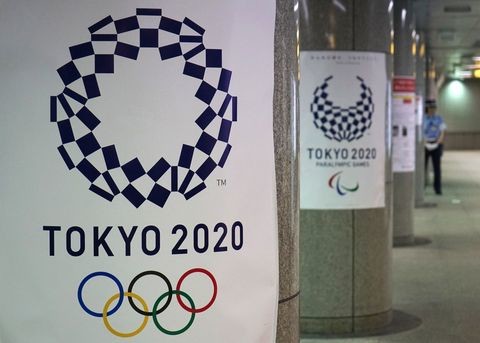
"This marathon course highlights the essence of Tokyo – a blend of tradition and modernity."
The heat at the test event reached up to 28 degrees centigrade with a 75 per cent humidity.
Even warmer conditions are expected when the Olympics are held in July and August, a major headache for organizers after dozens of heat-related deaths in Tokyo.
The Olympic marathons start-time has already been moved back to 6am to avoid the hottest parts of the day.
Organizers used the test event to assess issues they may face next year.
by Dan Palmer
Login to leave a comment
Tokyo 2020 Olympic Games
Fifty-six years after having organized the Olympic Games, the Japanese capital will be hosting a Summer edition for the second time, originally scheduled from July 24 to August 9, 2020, the games were postponed due to coronavirus outbreak, the postponed Tokyo Olympics will be held from July 23 to August 8 in 2021, according to the International Olympic Committee decision. ...
more...NAKAMURA AND MAEDA WIN JAPAN’S MARATHON GRAND CHAMPIONSHIP
Japan’s selection process for their 2020 Olympic marathon team culminated in victory for Shogo Nakamura and Honami Maeda at the Marathon Grand Championship in Tokyo on Sunday (15).
Japan’s Olympic marathon squad is arguably the toughest national team to make. Several nations may have great depth in one particular area – the US and Jamaica in the sprints and hurdles, Kenya and Ethiopia in the distance events – but for Japan’s MGC there were strict qualifying criteria simply to make it to the start line.
The qualifying window for the MGC opened in August 2017. Anyone who clocked the MGC qualifying standard (2:08:30 for men, 2:24:00 for women) or achieved a sub-2:11/2:28 average for their two fastest marathons in the qualifying window could compete at the MGC. Such was the fierce qualifying battle, the men’s long-standing Japanese record was broken by two different men during the qualifying period.
Forty athletes – 30 men and 10 women – eventually lined up for the MGC. Six of the men in the field had PBs faster than 2:08 while all but two runners in the women’s field had previously bettered 2:25.
And as if the tough qualifying process and competitive line-up wasn’t hard enough, the MGC itself – a marathon in 24-28C heat and 75% humidity – was one final brutal hoop for Japan’s best distance runners to jump through.
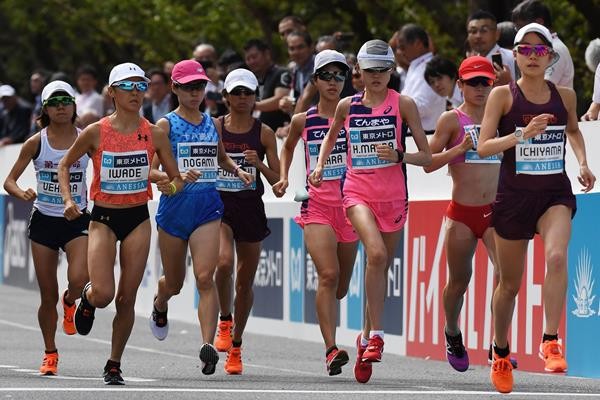
Even then, only the top two finishers are guaranteed a spot on Japan’s Olympic team. The third-place finishers are given a provisional place, but if another Japanese man runs 2:05:50 (the Japanese record) or a woman clocks 2:22:23, they can be given the third spot instead.
Fittingly, both races were not short on drama. Yuta Shitara, who broke the Japanese half-marathon record with 1:00:17 in 2017 and followed it with a since-bettered Asian record of 2:06:11 in Tokyo in February 2018, had promised before the race that he was going to set off fast and he stayed true to his word.
The 27-year-old shot into the lead, covering the first 5km in 14:56 and reaching 10km in 29:52. By the time he reached 15 kilometres (44:59), his lead had grown to more than two minutes. Shitara reached the half-way point in 1:03:27 while the four-man chase pack – comprising Kengo Suzuki, Shogo Nakamura, Yuma Hattori and national record-holder Suguru Osako – followed in 1:05:28, showing Shitara’s lead was already starting to dwindle.
The chasing pack grew to seven men at 30km. Shitara continued to lead, but his margin had reduced to 77 seconds. Two more men caught up with the chasers over the next five kilometres, reaching 35km in 1:49:12, and Shitara was now in sight, just 35 seconds in front after covering that five-kilometre section in 16:57.
The inevitable happened two kilometres later as the chase pack breezed past Shitara at the drinks station. With eight men now in contention, Ryo Hashimoto pushed the pace and was followed by Osako, Nakamura and Hattori.
Nakamura was the next to make a move and opened up a few seconds on Hattori and Osako at 40km with Hashimoto dropping back. But with 28 seconds separating the top seven men and little more than two kilometres remaining, the race was far from over. Hattori briefly dropped Osako, but they regrouped moments later and appeared to make up ground on Nakamura. Osako managed to bridge the gap to Nakamura but had nothing left as Nakamura pulled away in the closing stages to win by eight seconds, crossing the line in 2:11:28.
First place may have been decided but the race for Olympic team places wasn’t over. Hattori caught a struggling Osako before the line to take second place in 2:11:36. Osako finished third in 2:11:41. Shohei Otsuka, fourth in 2:11:58, was the only other finisher inside 2:12. Long-time leader Shitara eventually finished 14th in 2:16:09.
The women’s race was effectively decided just before half way when Honami Maeda broke away from the pack.
Eight of the 10 women in the field had passed through 10km in 33:34 and five of them were still together at 15km. Maeda made her move just before 20km, which she passed in 1:07:27, two seconds ahead of two-time world finalist Ayuko Suzuki, who was contesting just her second marathon to date.
A 16:41 split for the next five-kilometre segment was enough to drop the last of Maeda’s pursuers and by 30km her lead had grown to 82 seconds. She continued to pull away from Suzuki over the final quarter of the race and went on to win convincingly in 2:25:15.
Suzuki had a comfortable 33-second margin over Rei Ohara at 40km, but she started to struggle during the last two kilometres. Ohara made up significant ground but couldn’t quite catch Suzuki before the line as Suzuki – the slowest qualifier for the MGC – claimed second place in 2:29:02 with Ohara taking third in 2:29:06. Mizuki Matsuda was fourth in 2:29:51.
by IAAF
Login to leave a comment
Tokyo 2020 Olympic Games
Fifty-six years after having organized the Olympic Games, the Japanese capital will be hosting a Summer edition for the second time, originally scheduled from July 24 to August 9, 2020, the games were postponed due to coronavirus outbreak, the postponed Tokyo Olympics will be held from July 23 to August 8 in 2021, according to the International Olympic Committee decision. ...
more...

